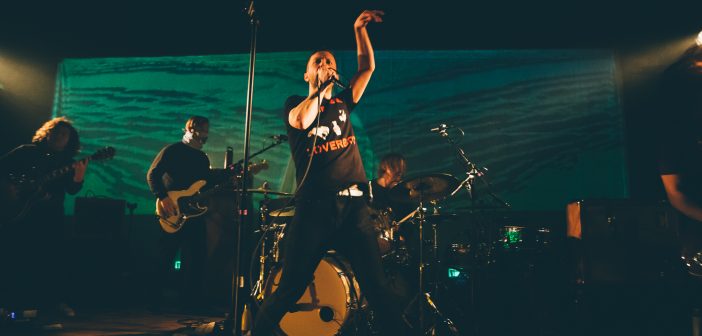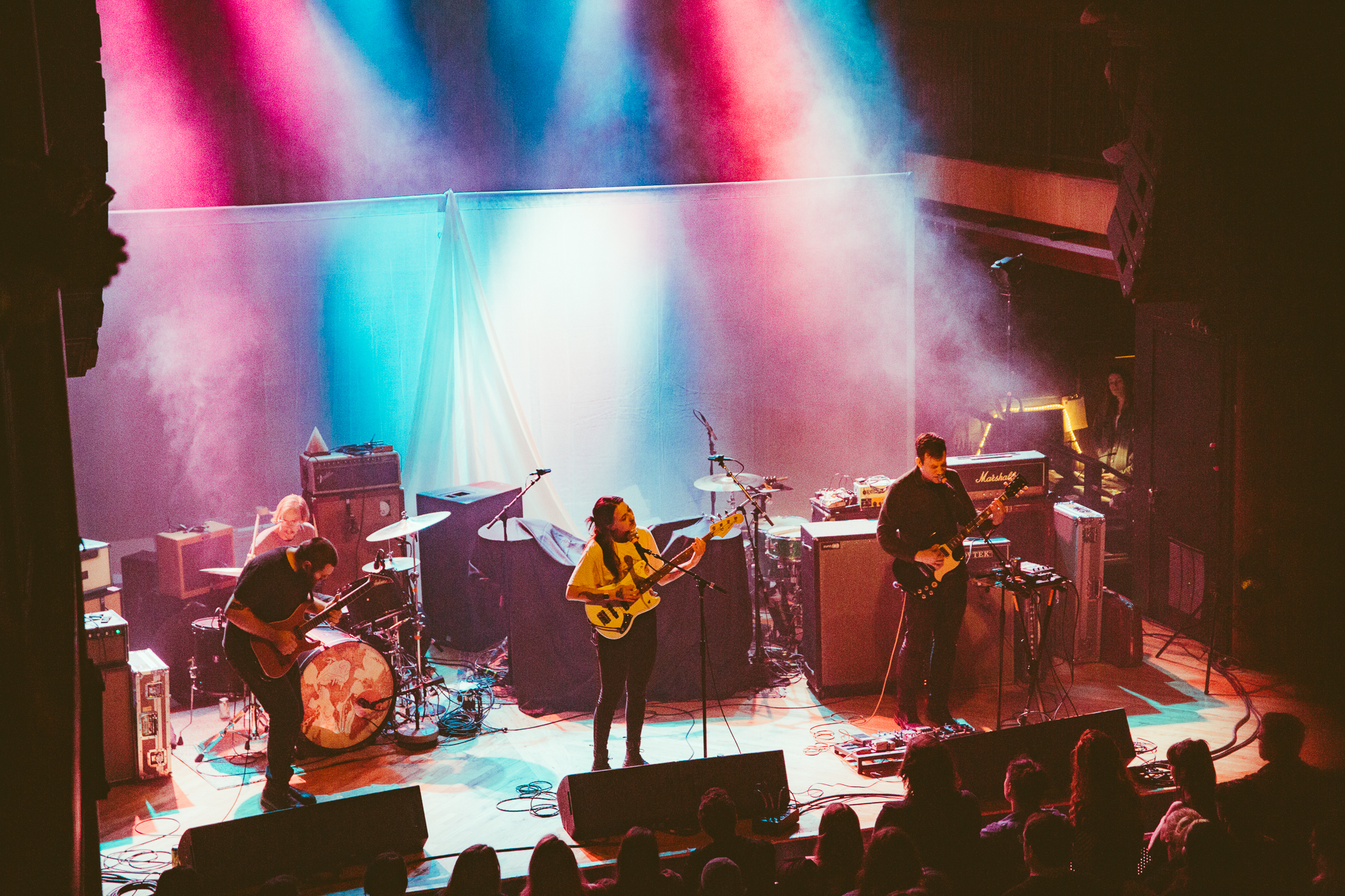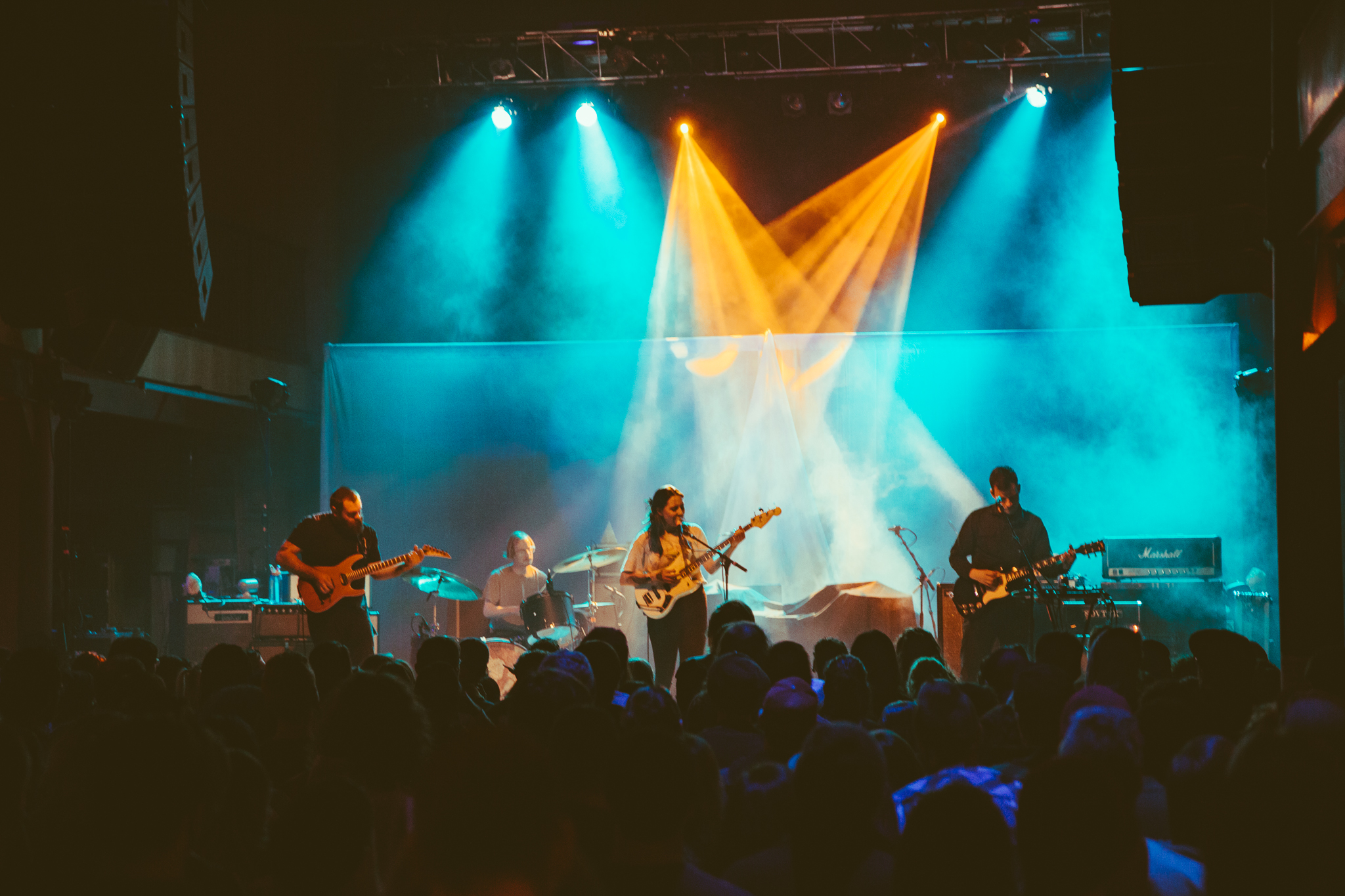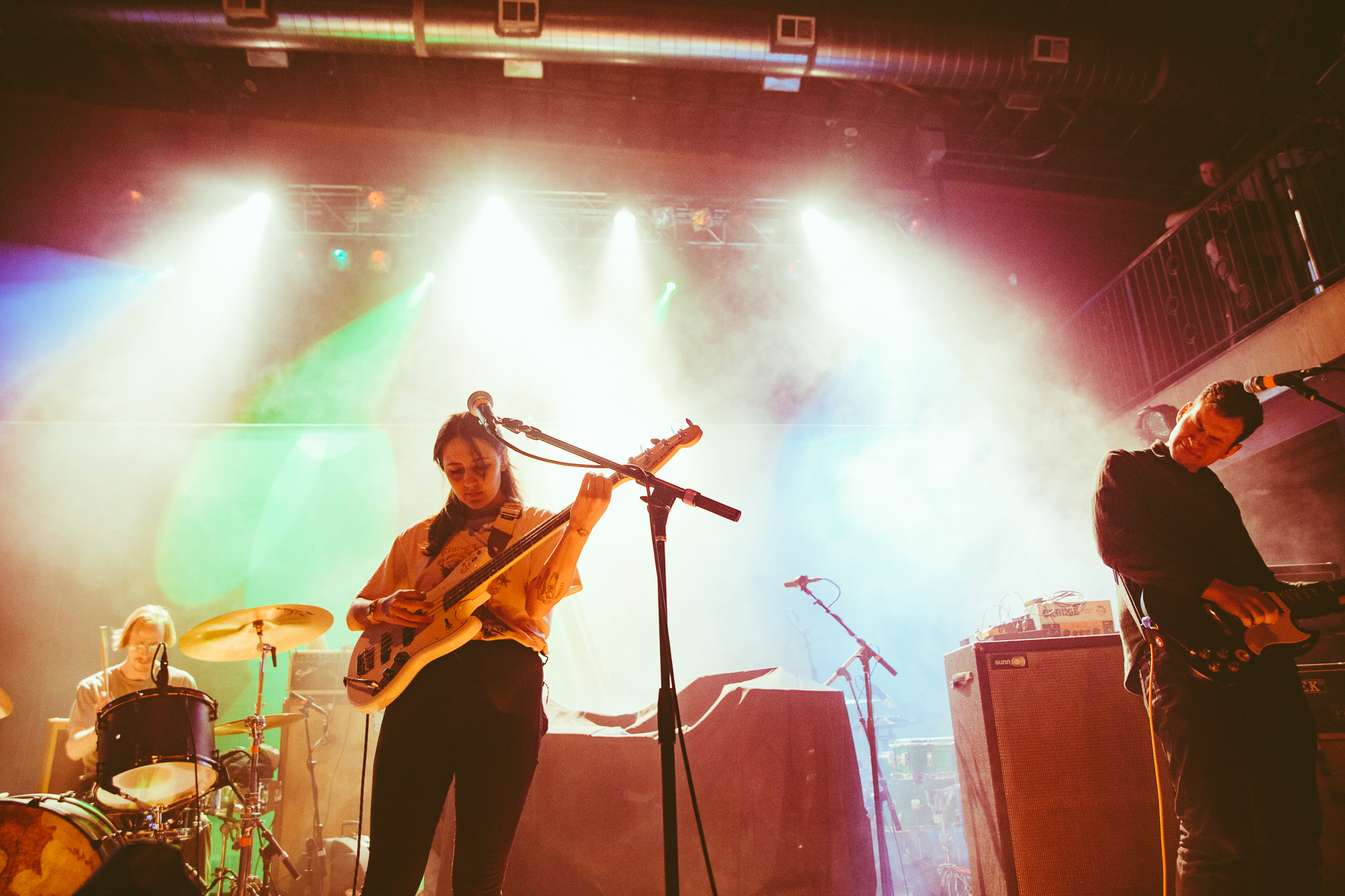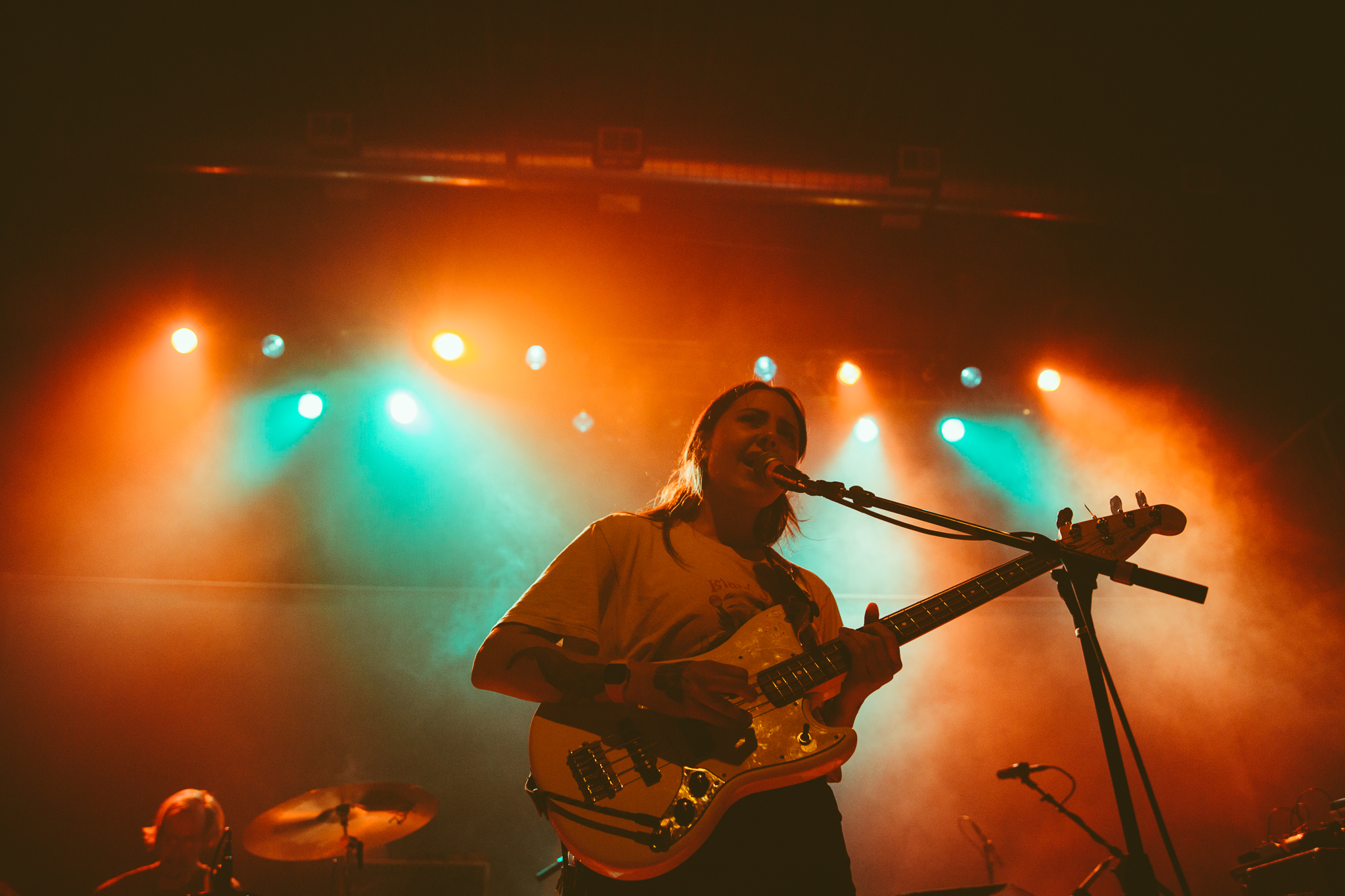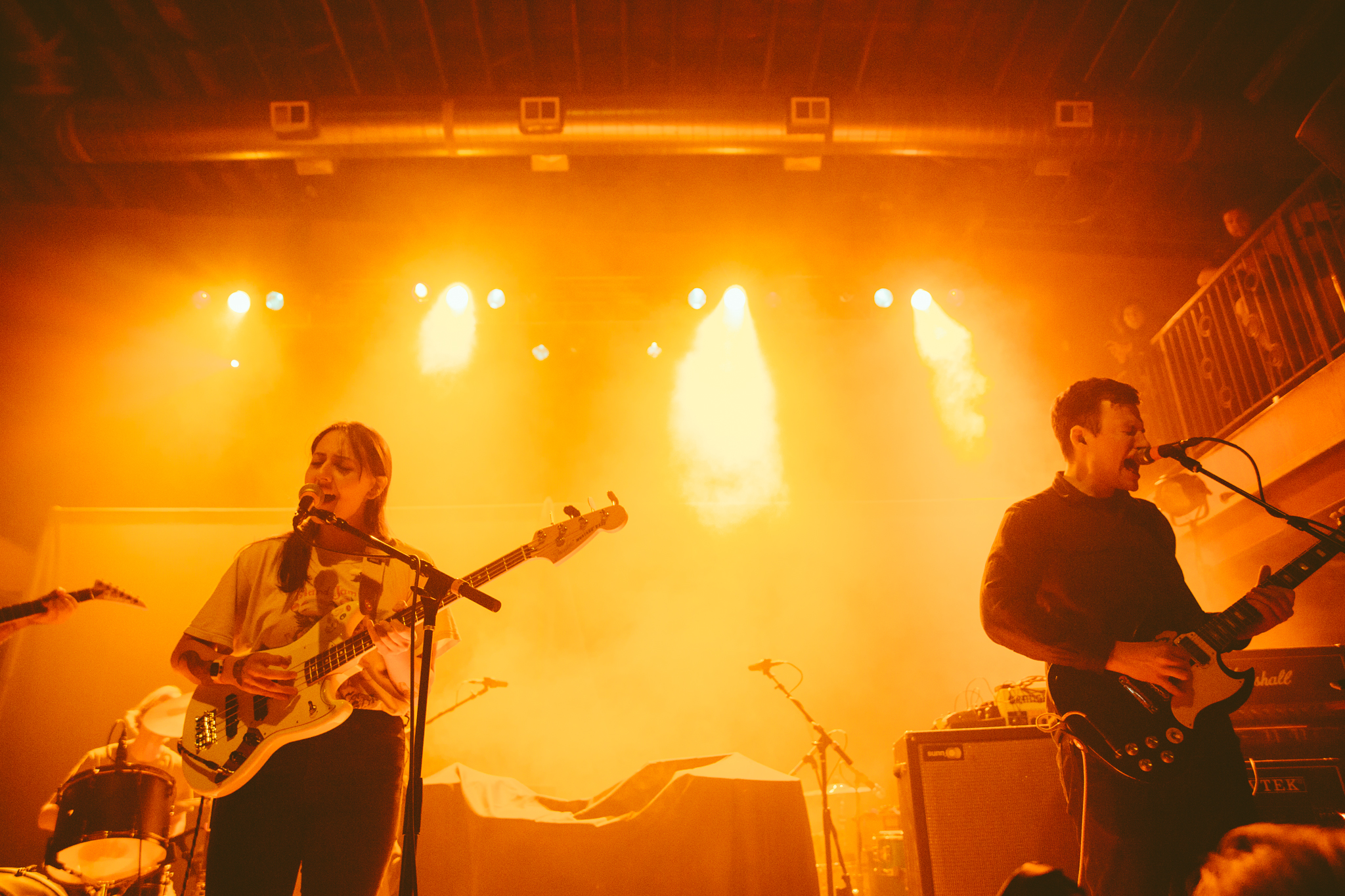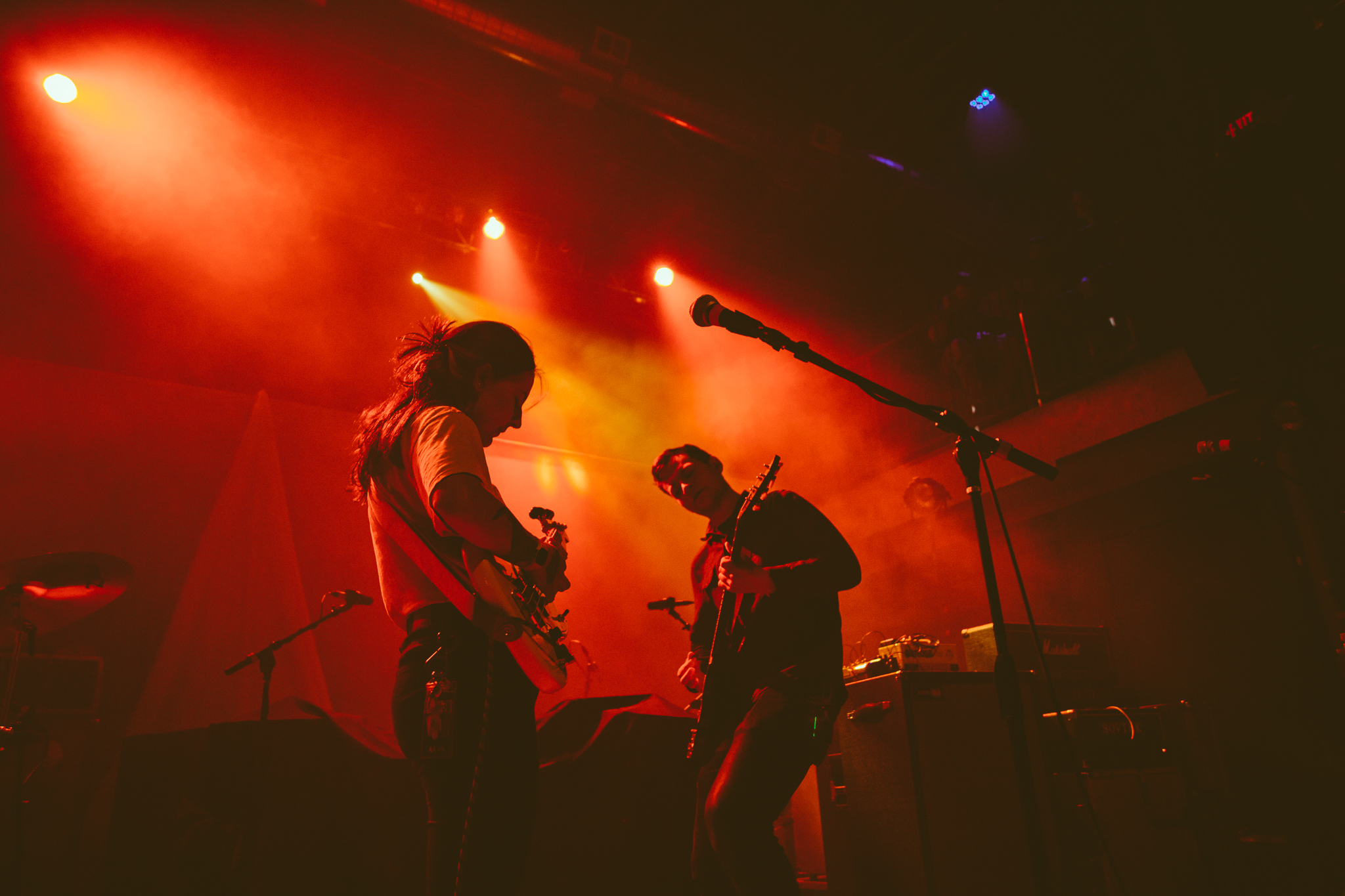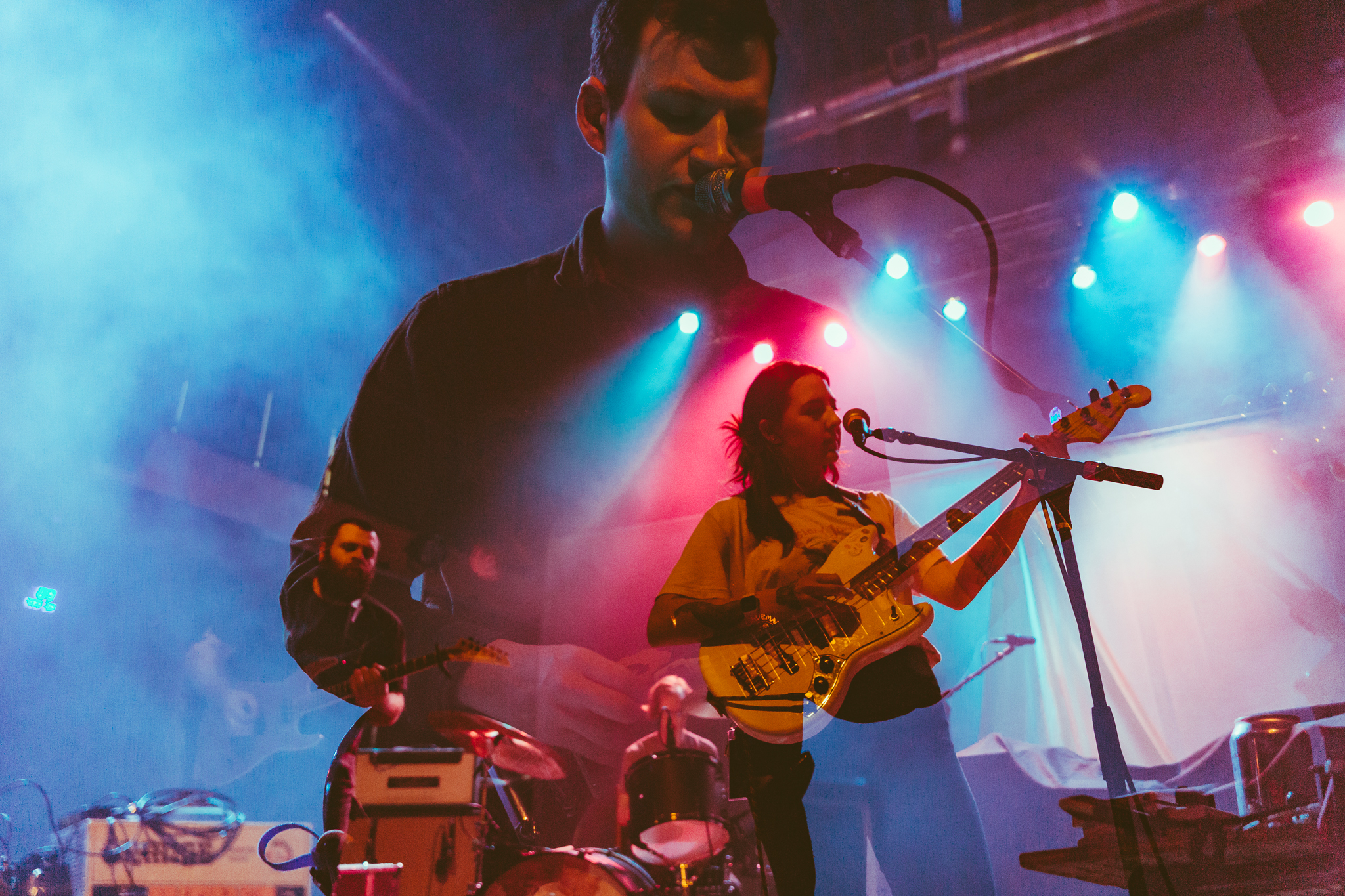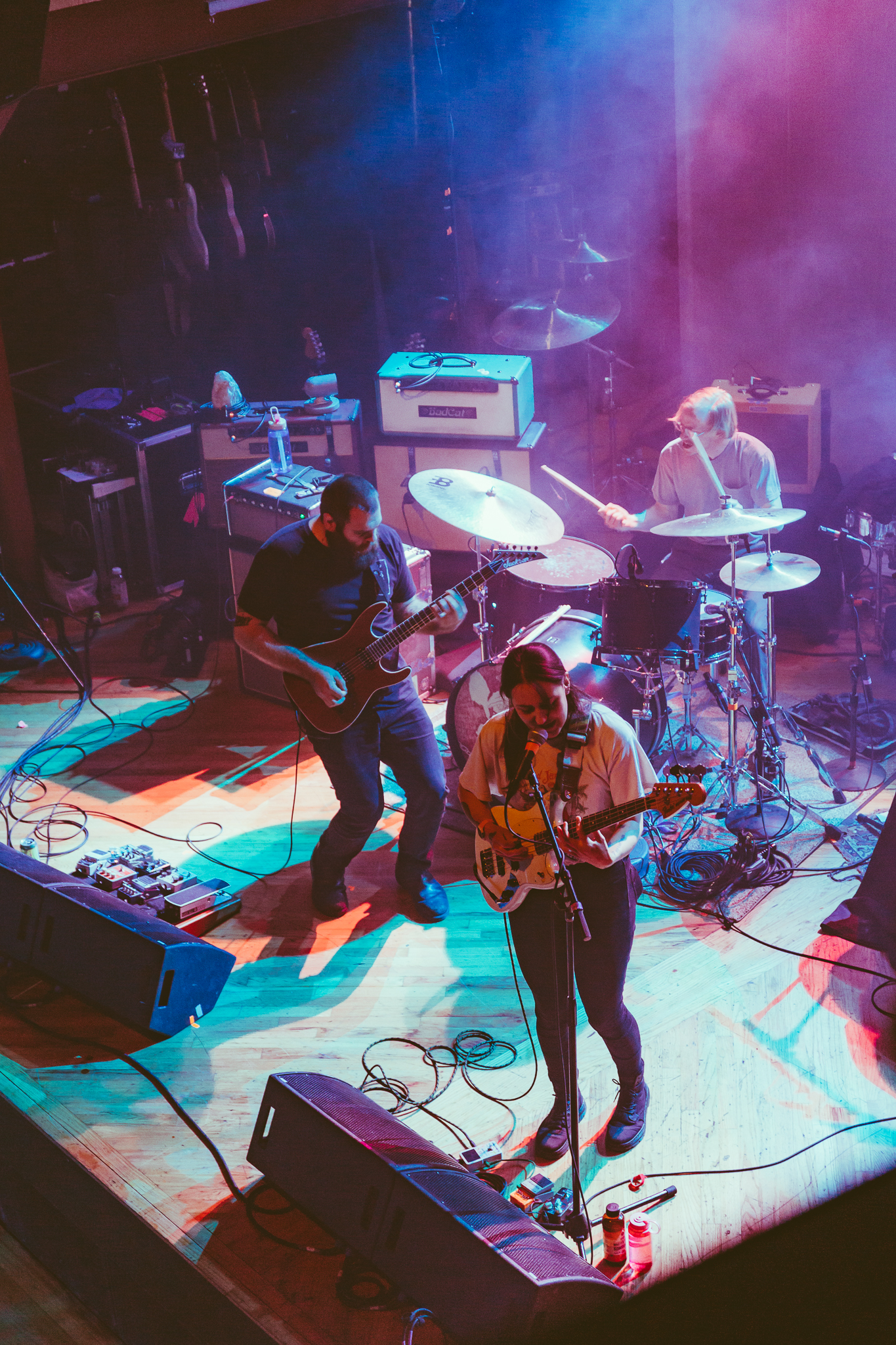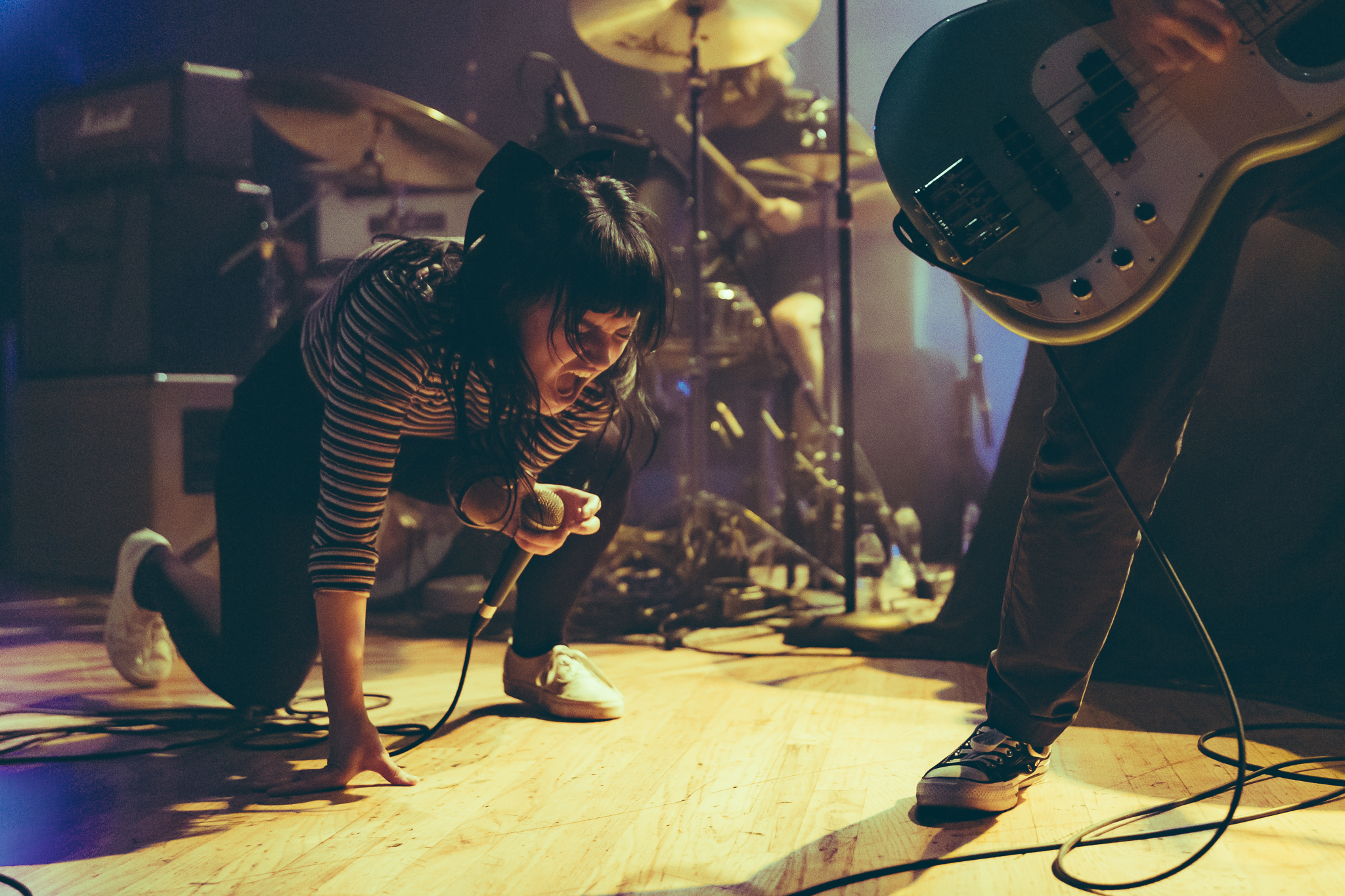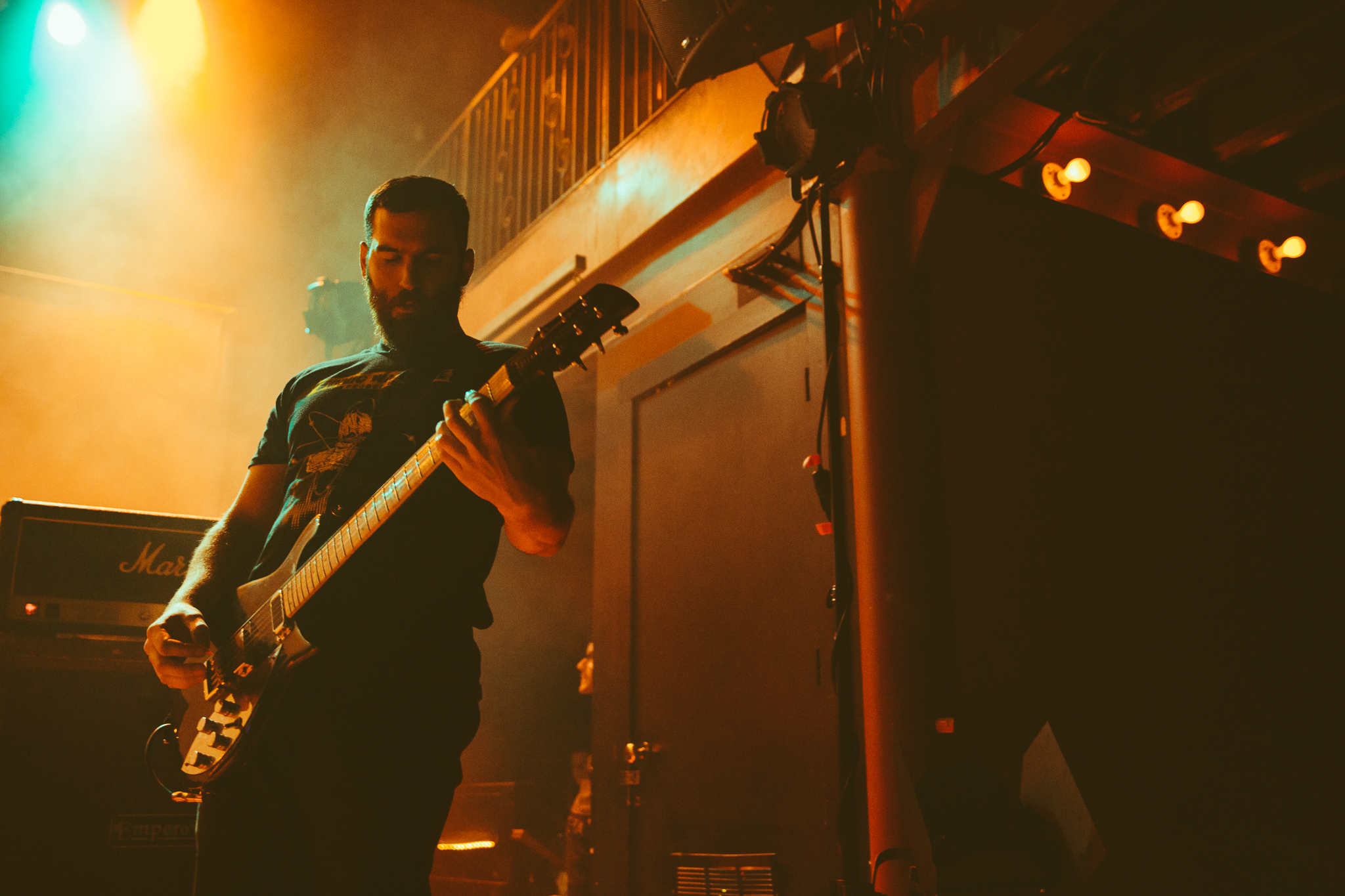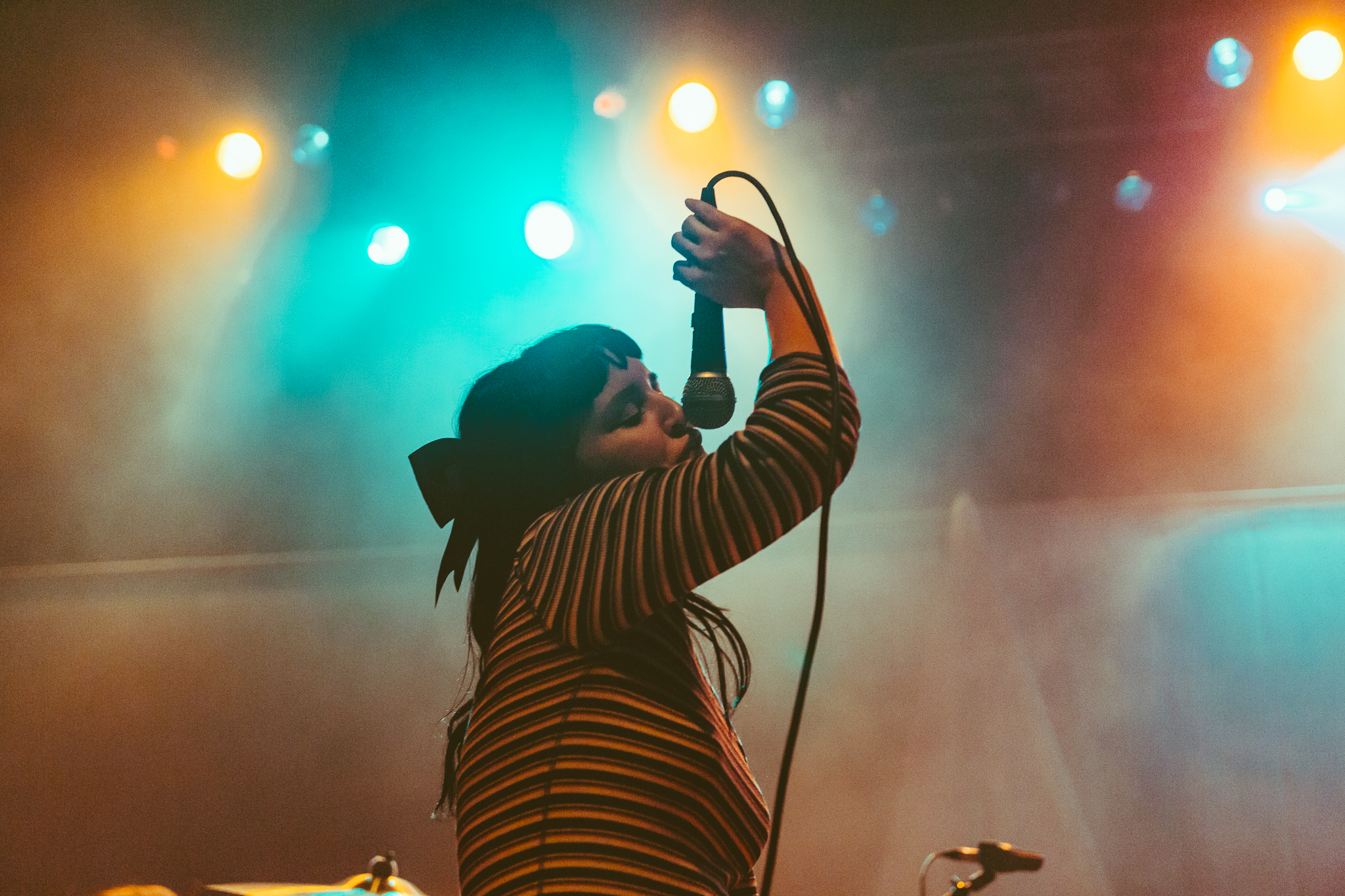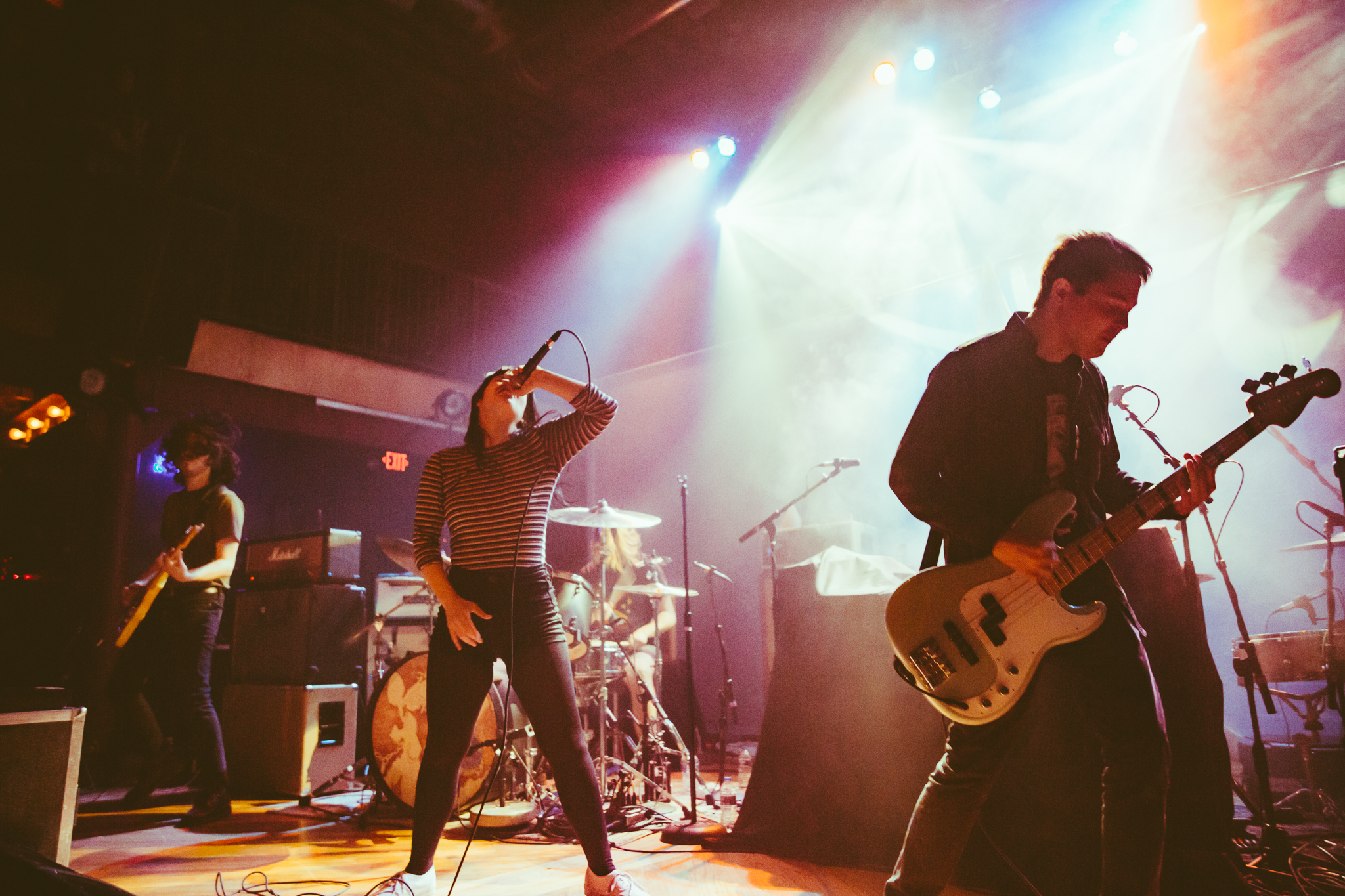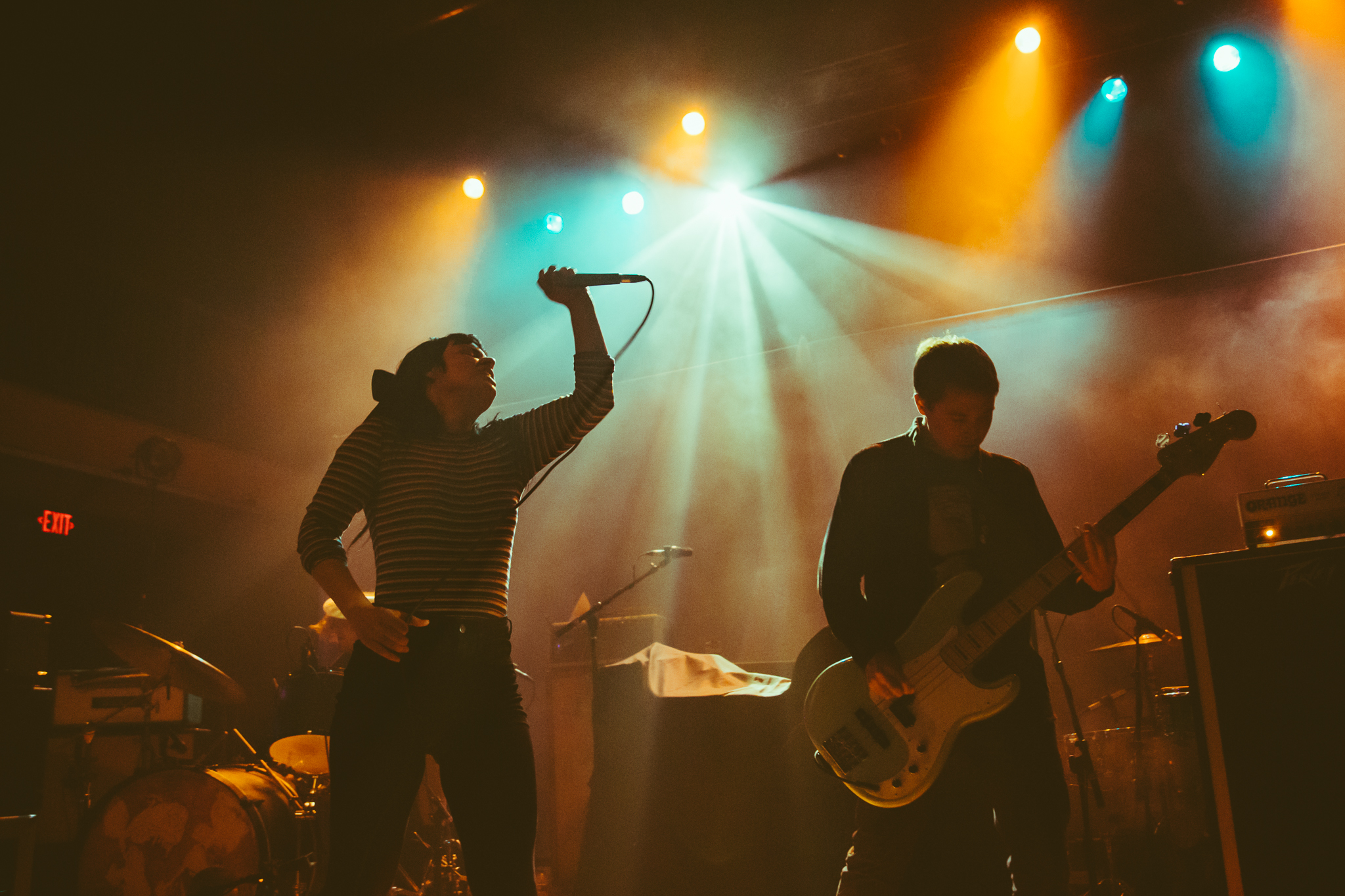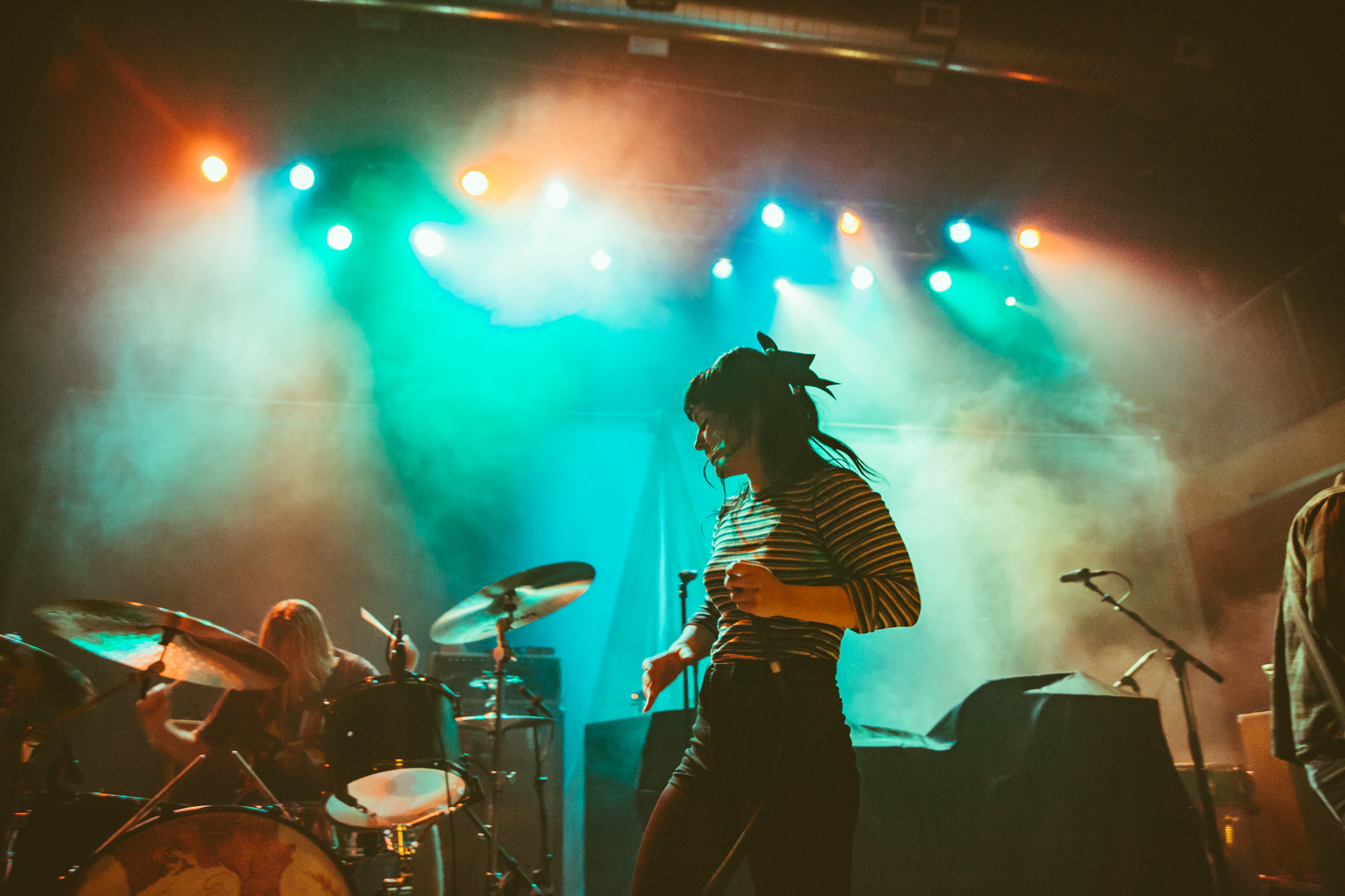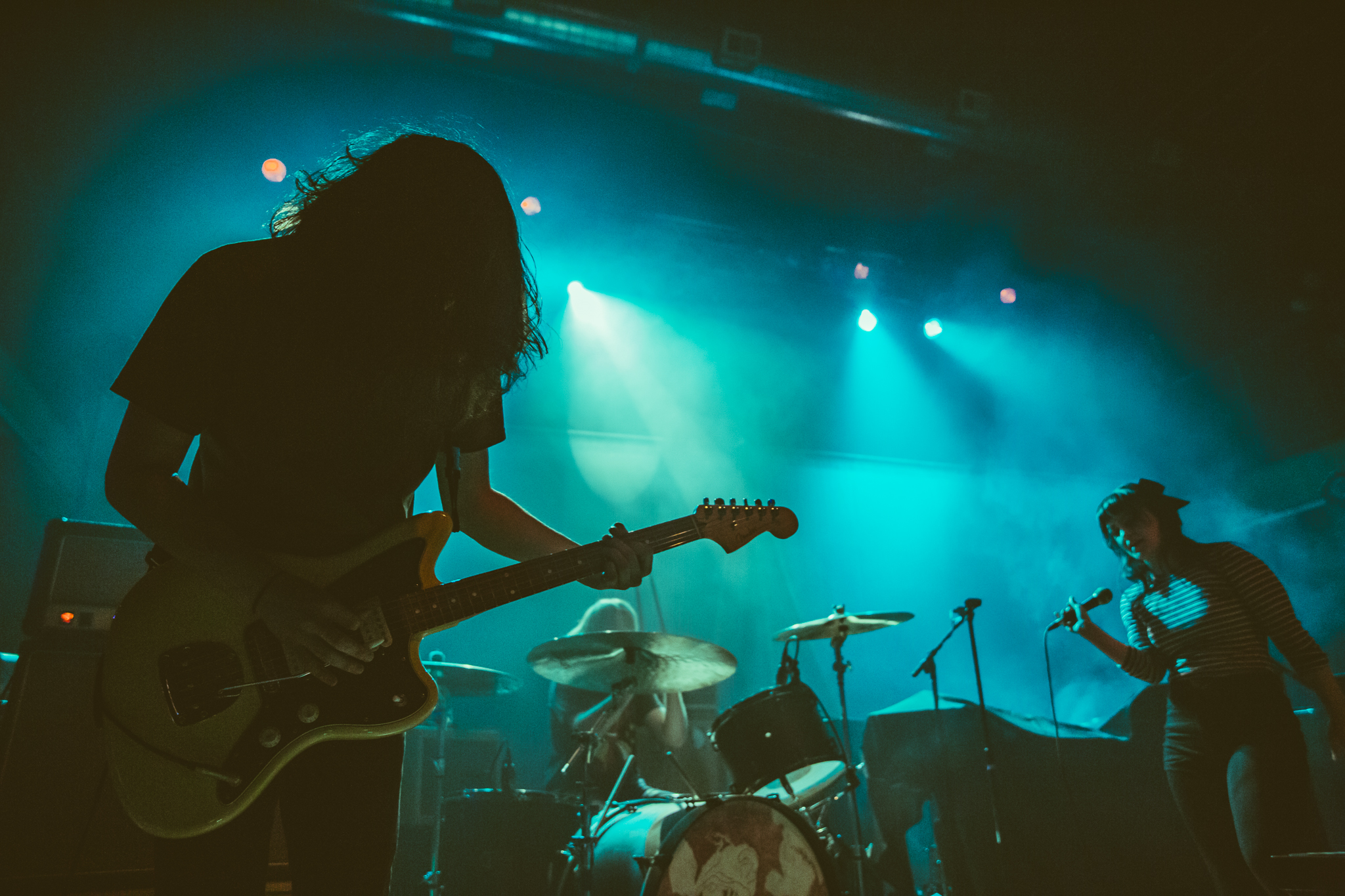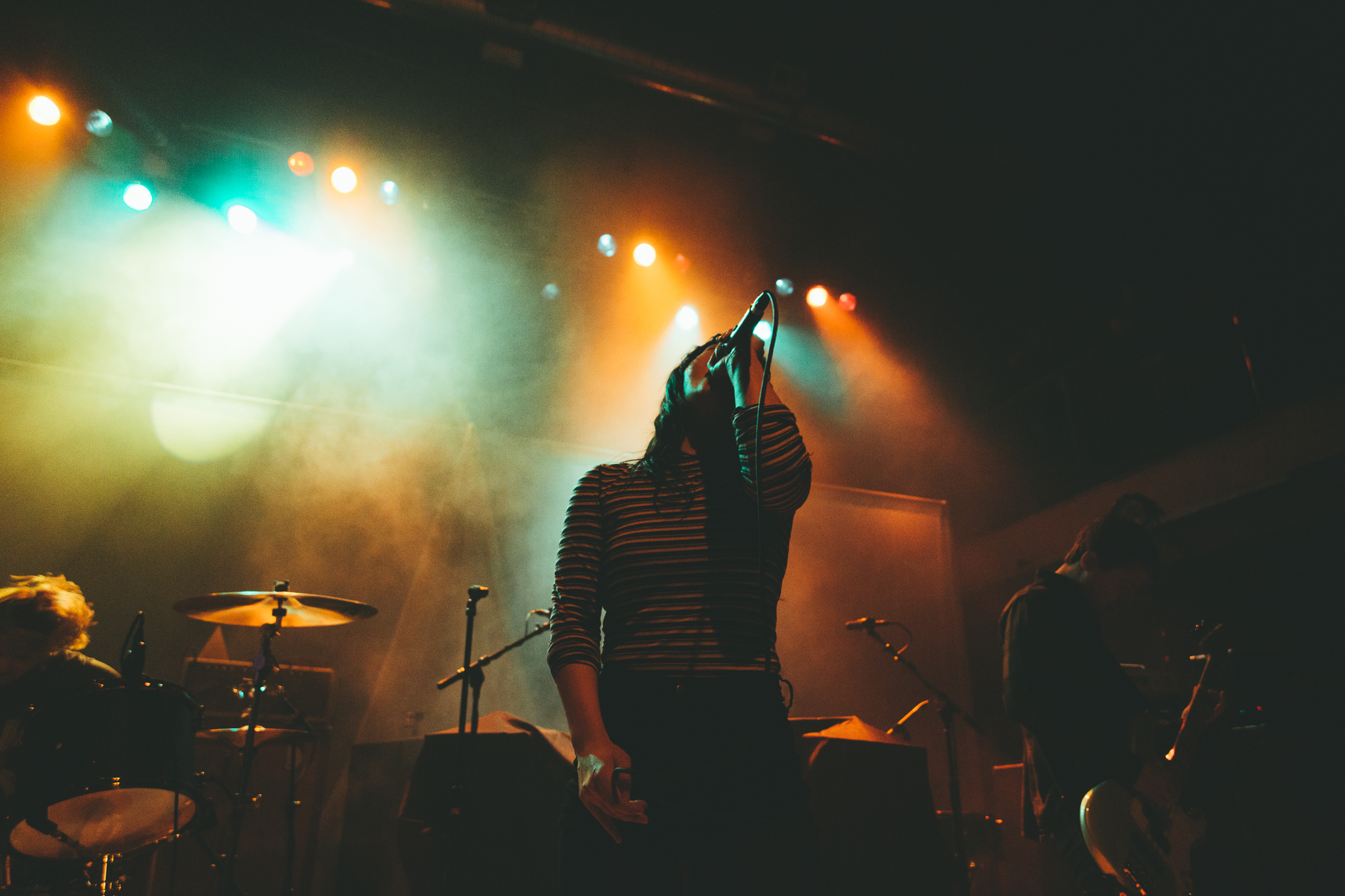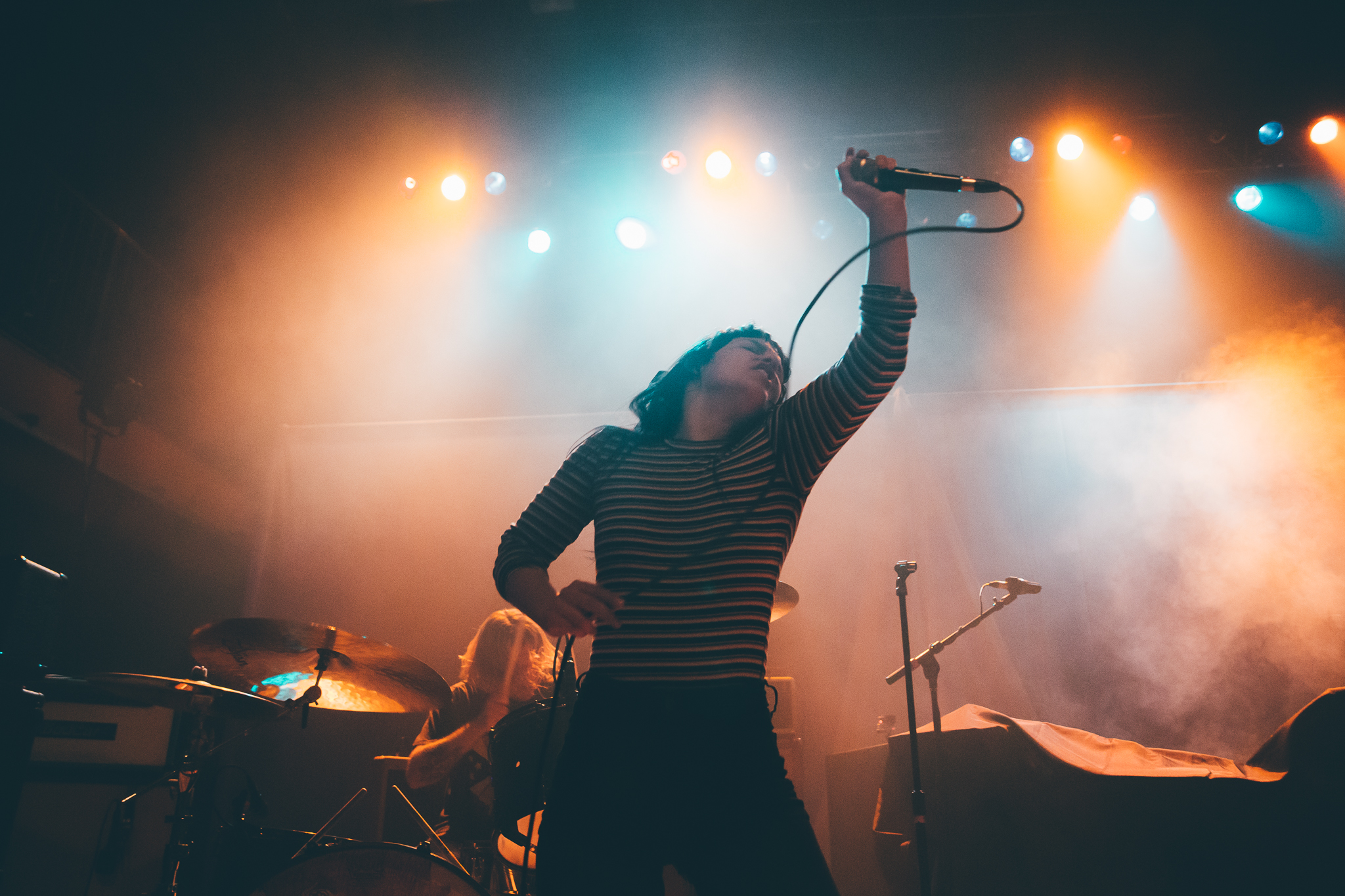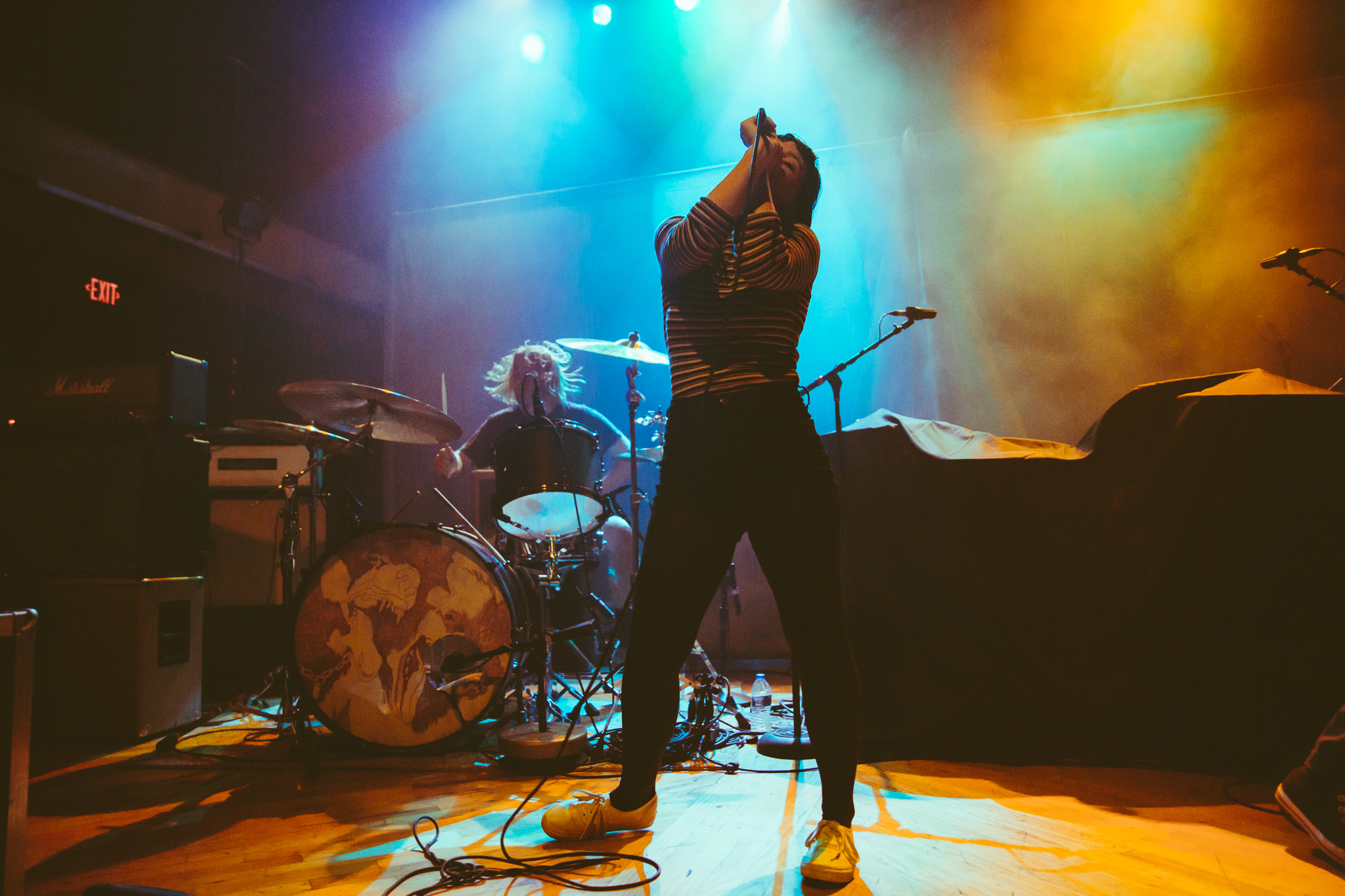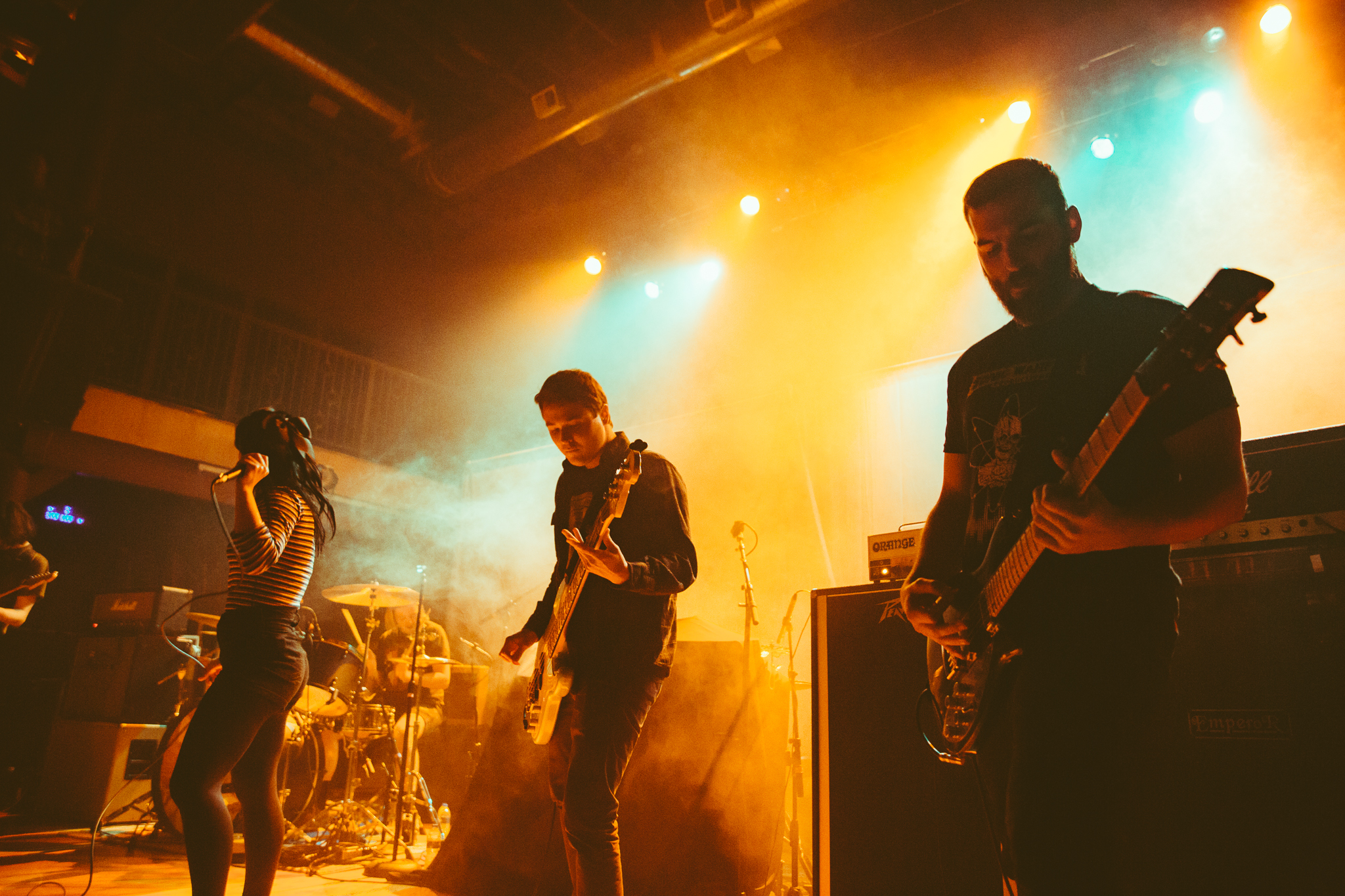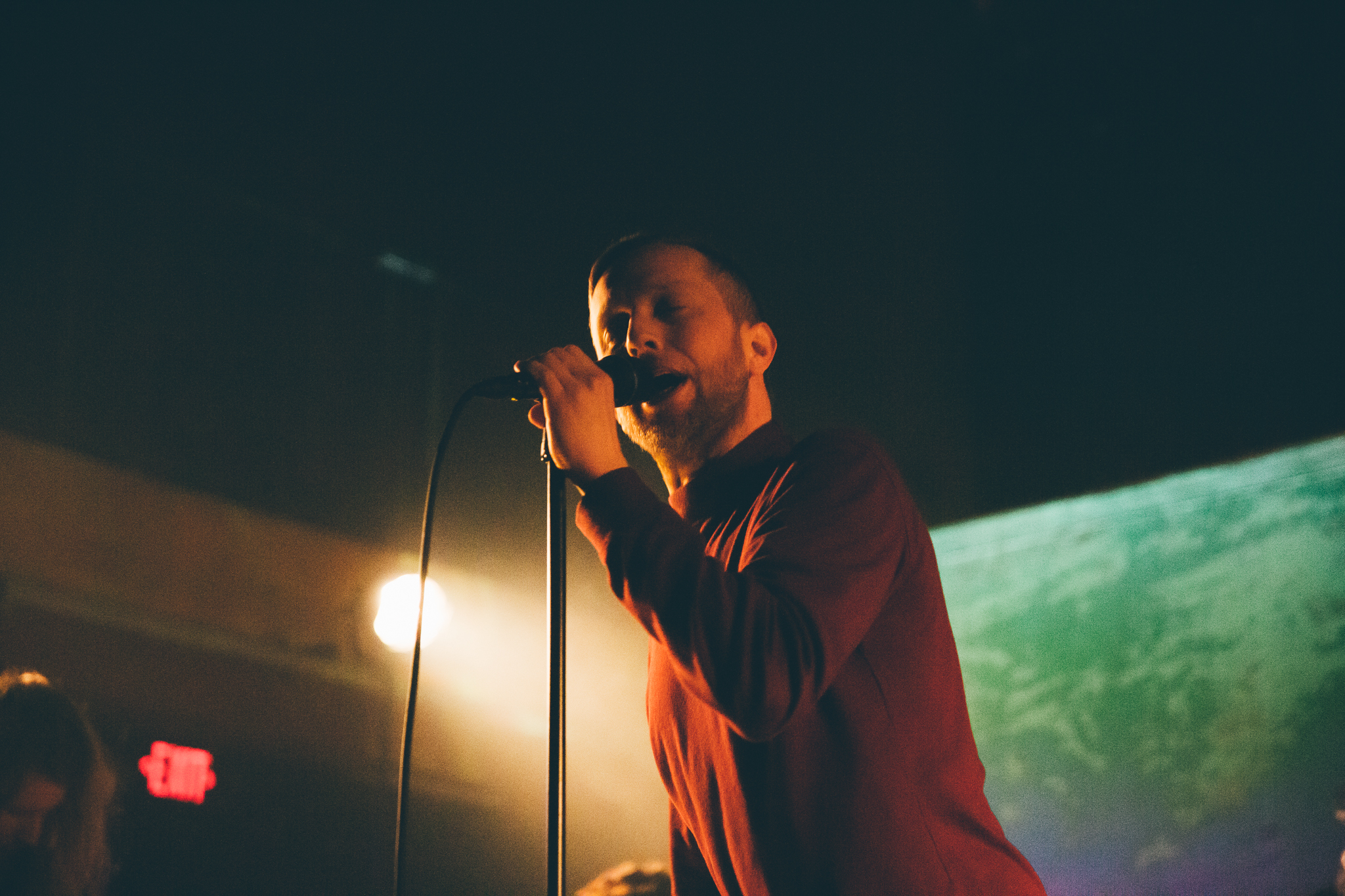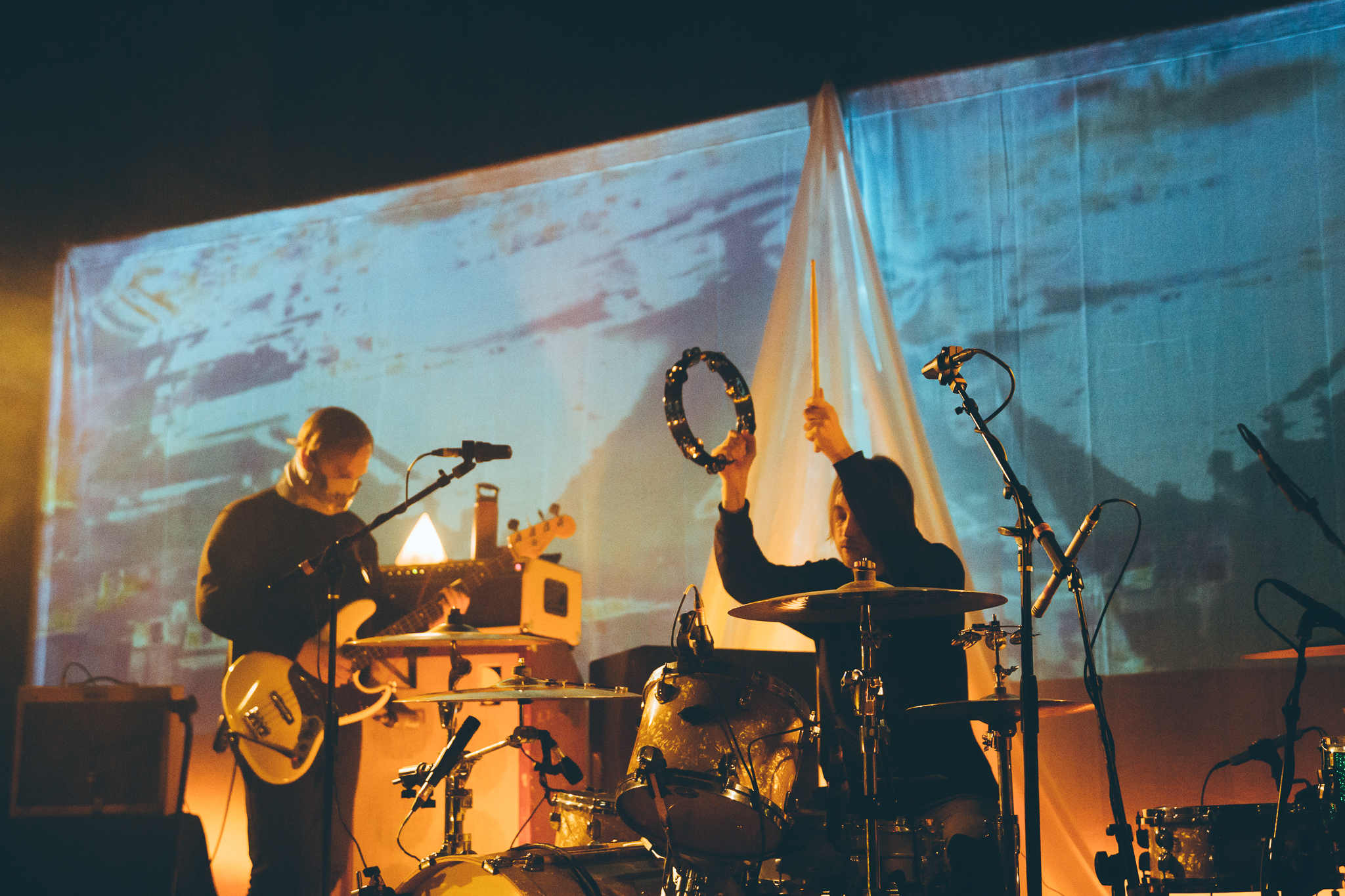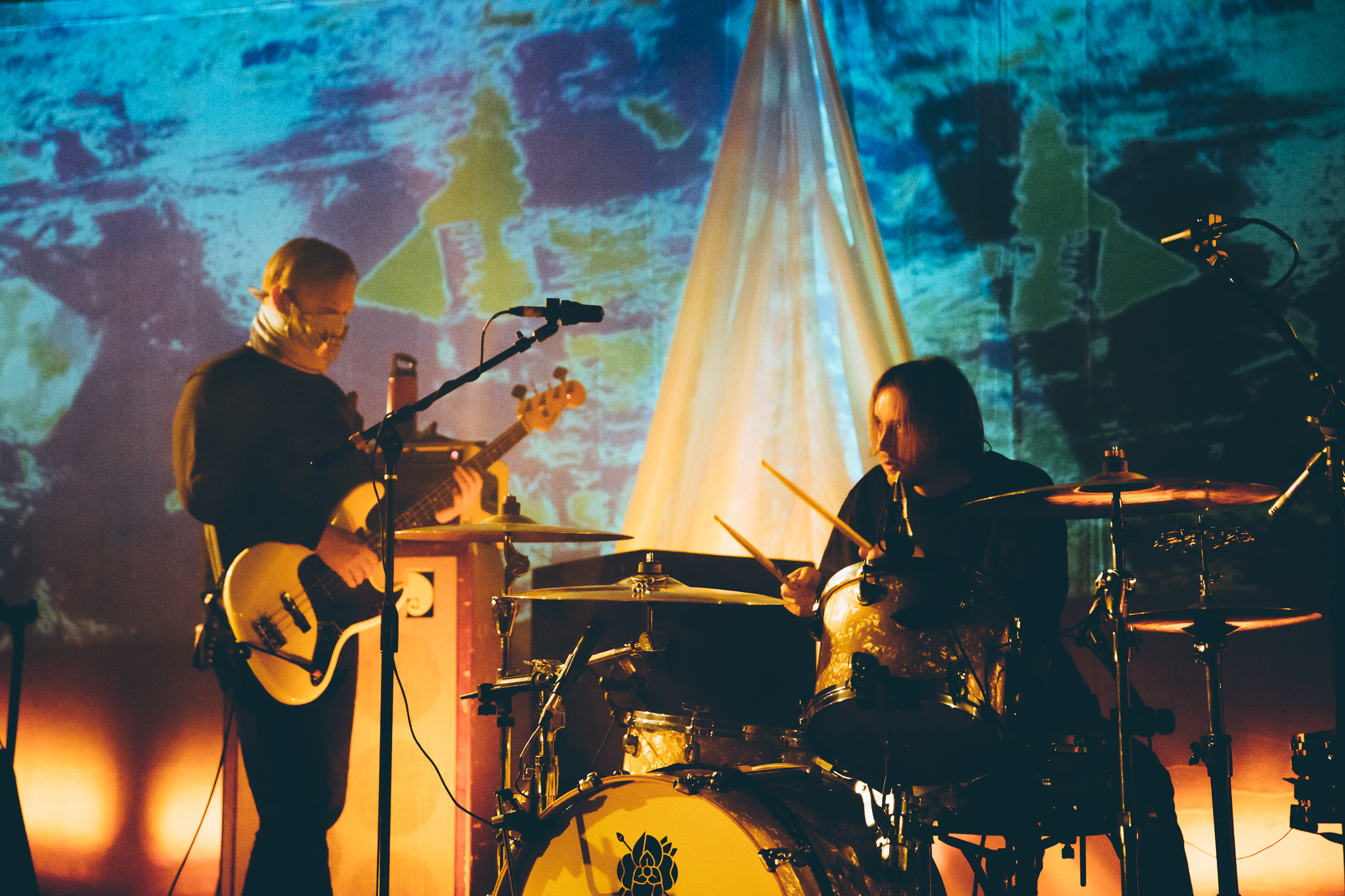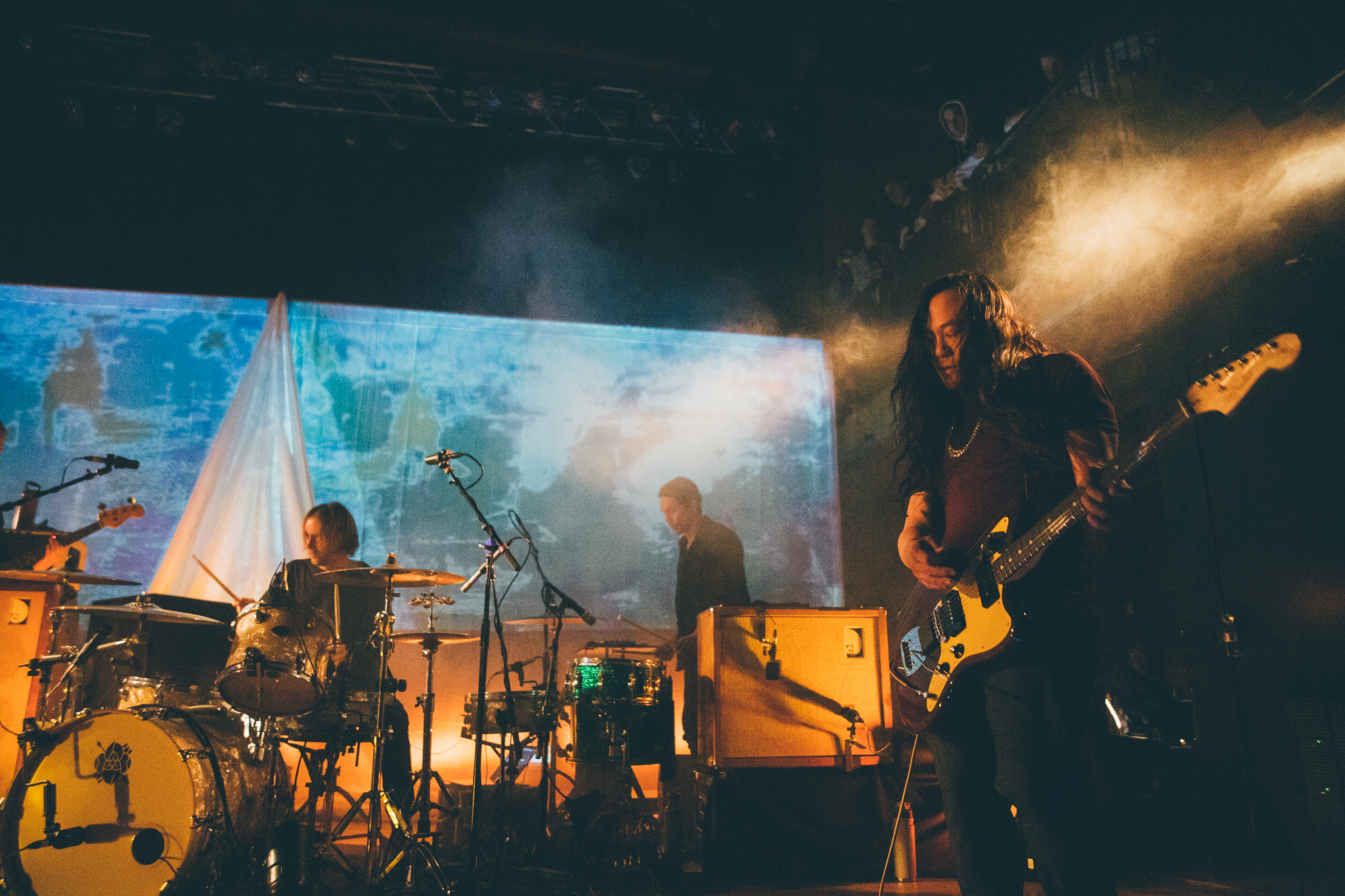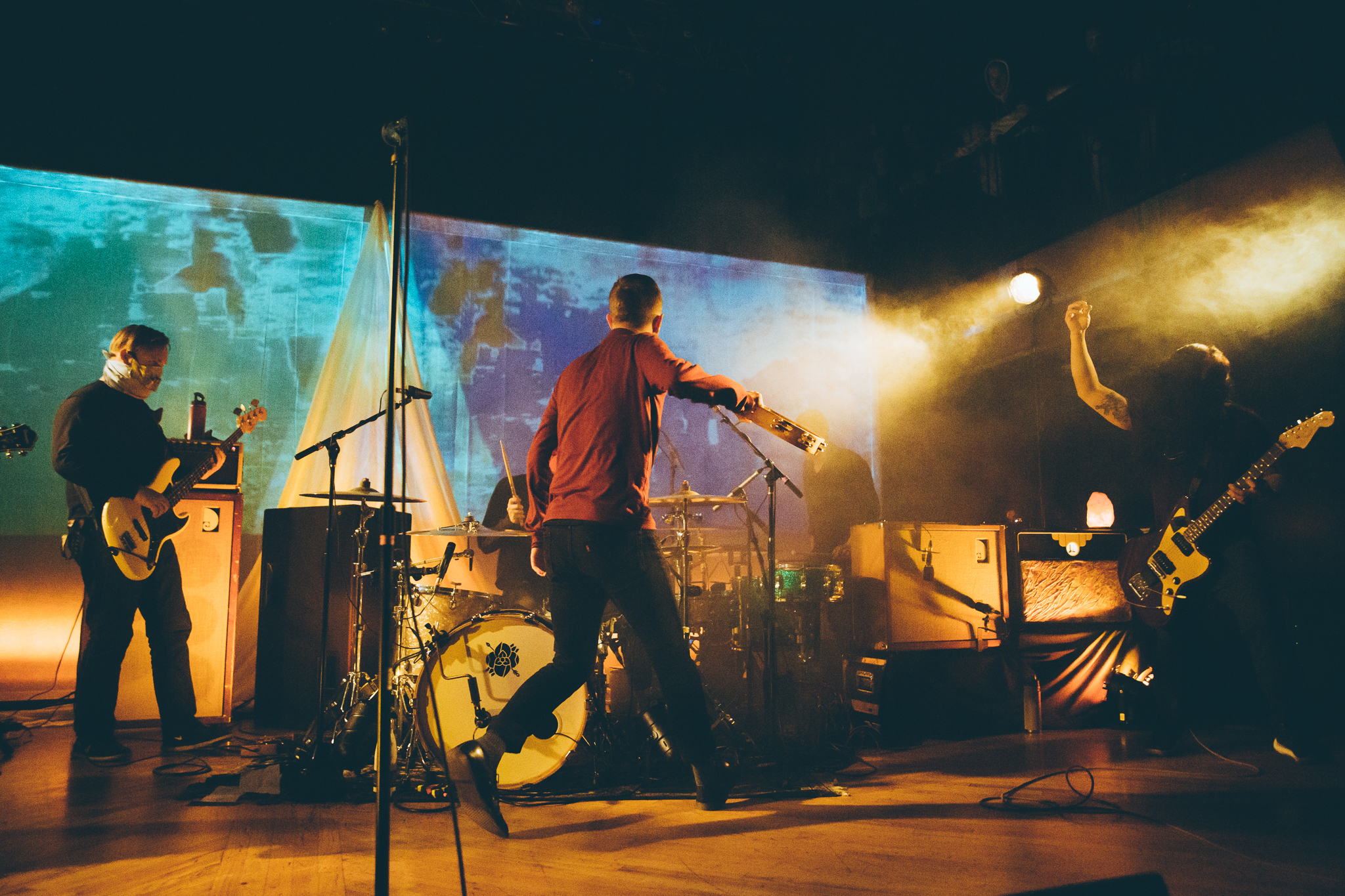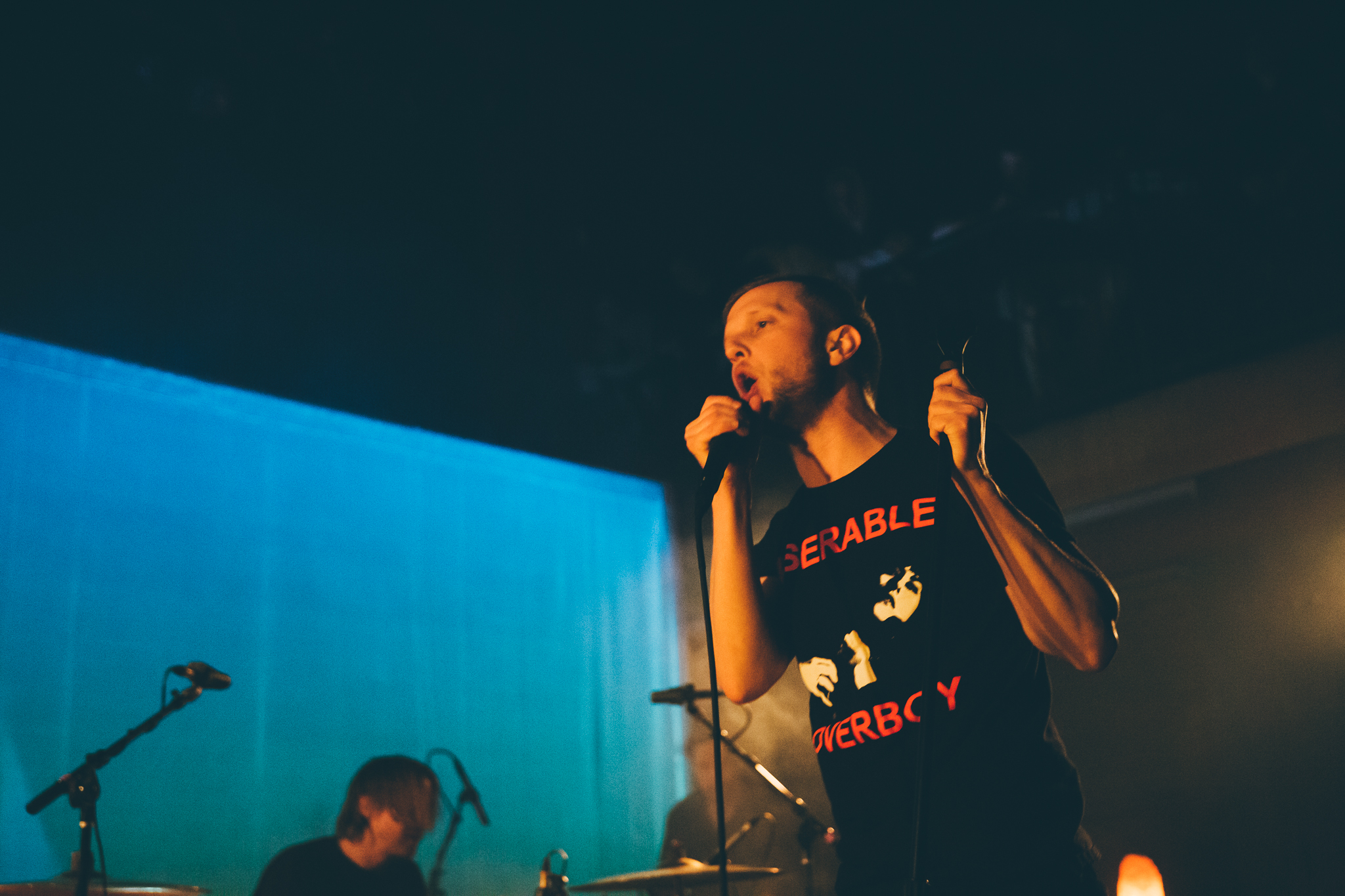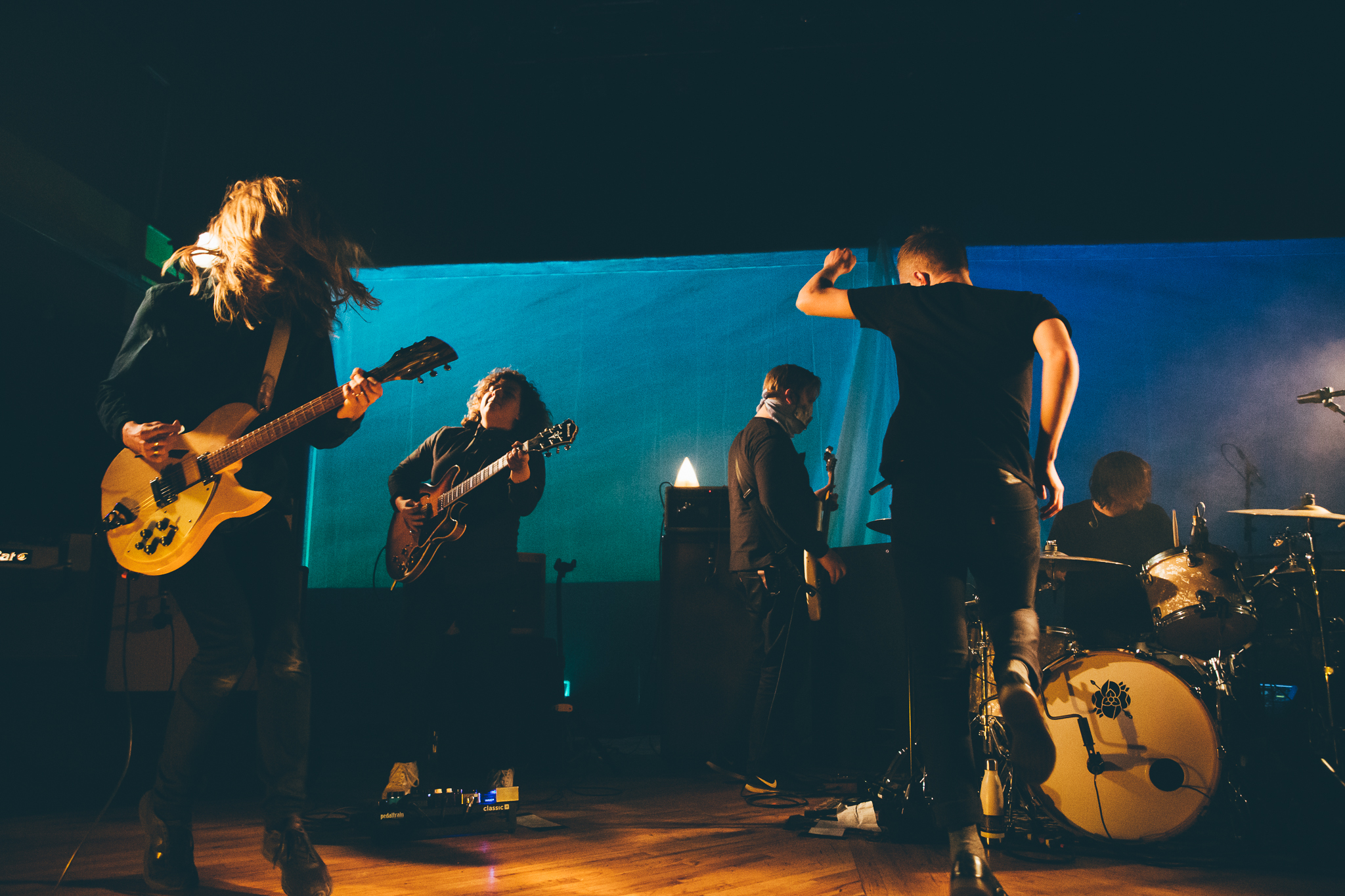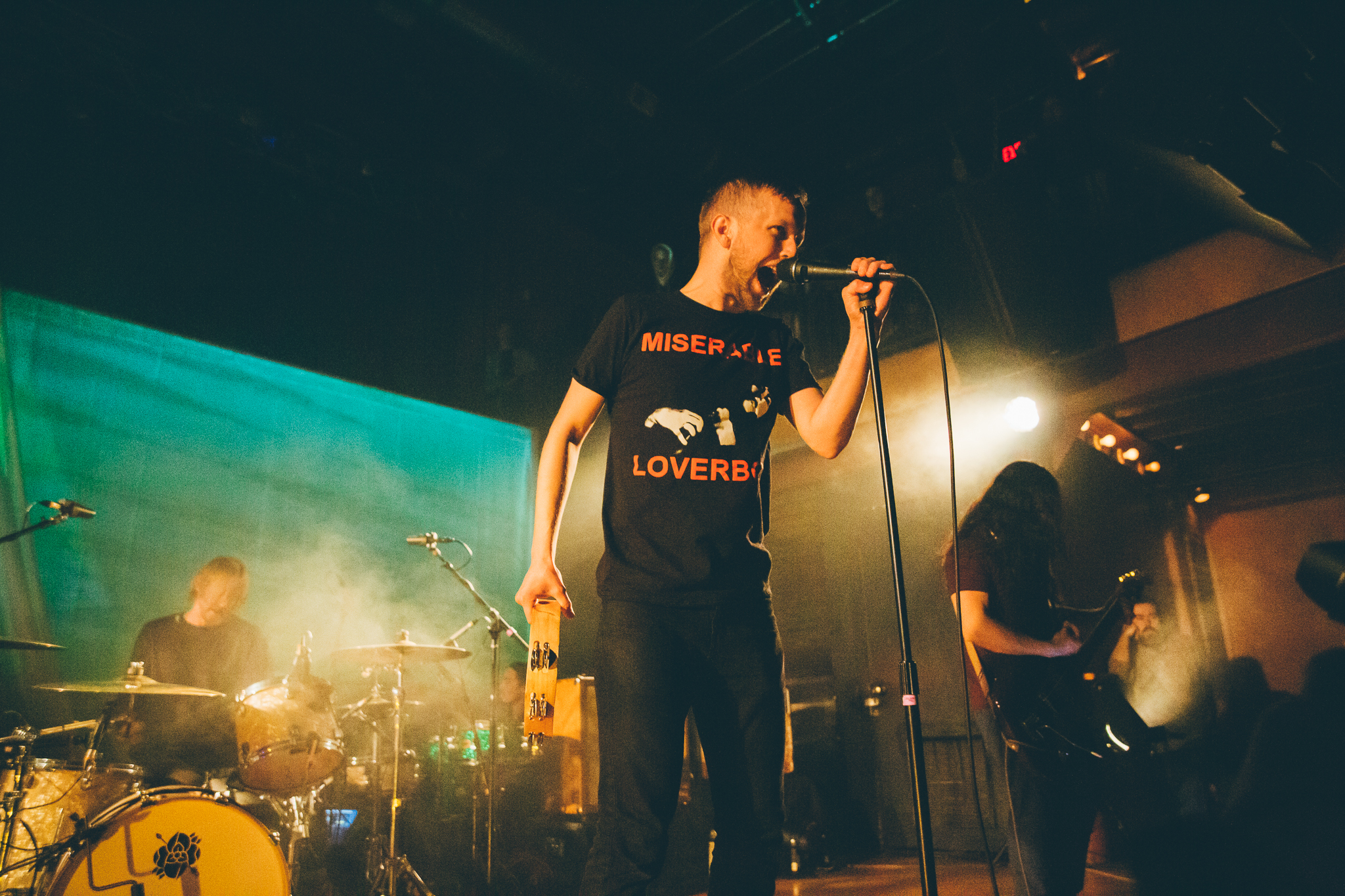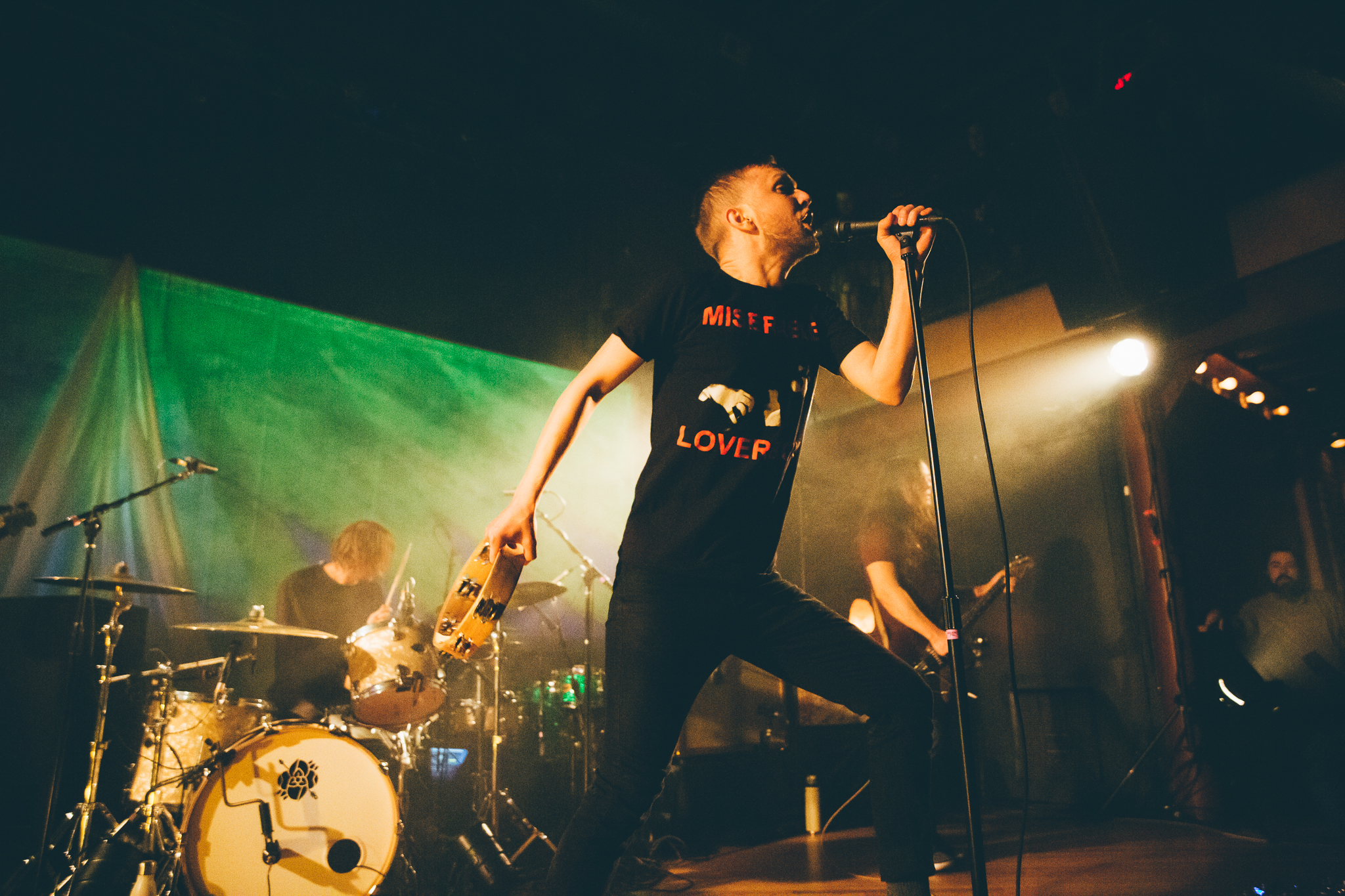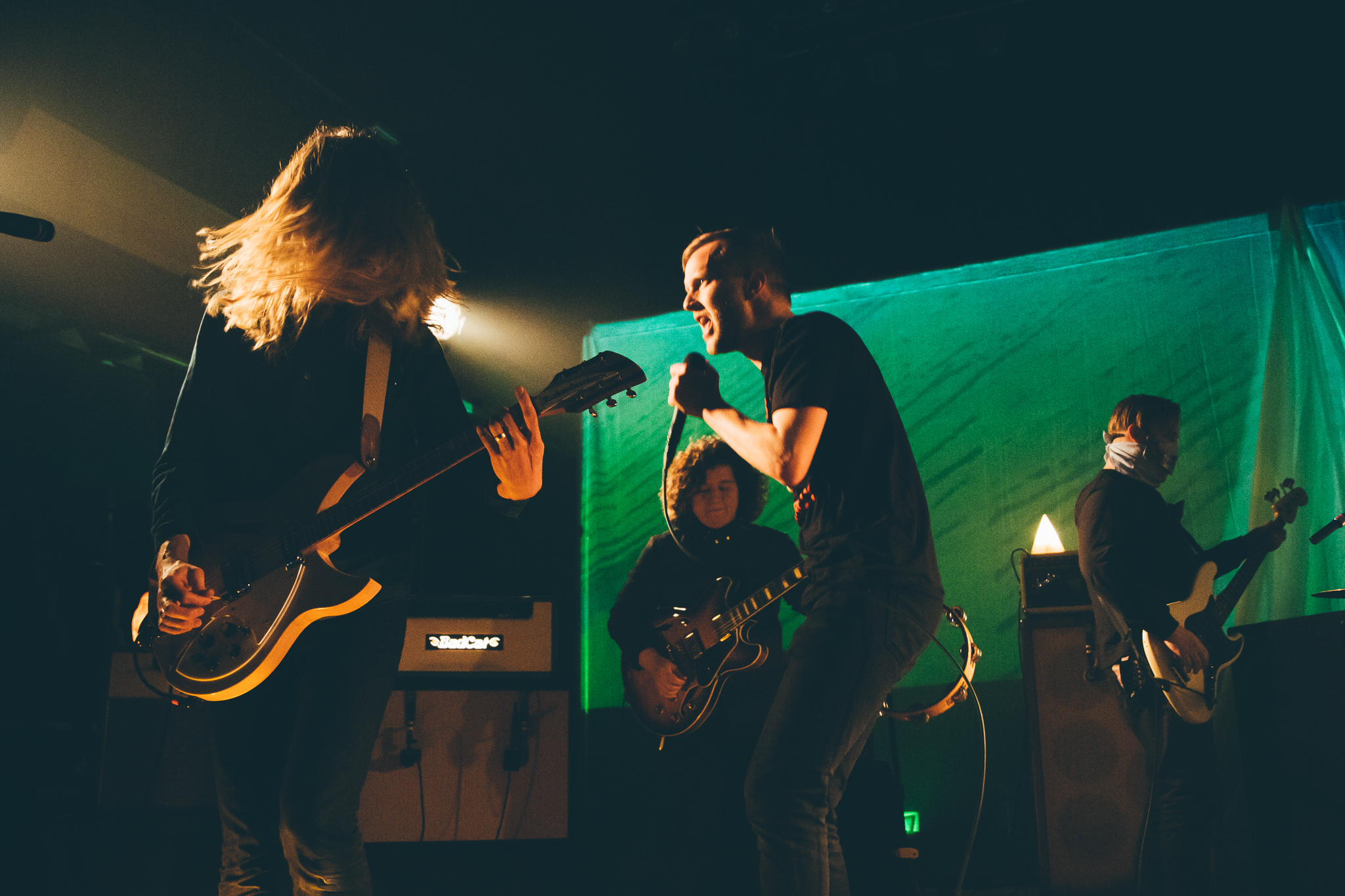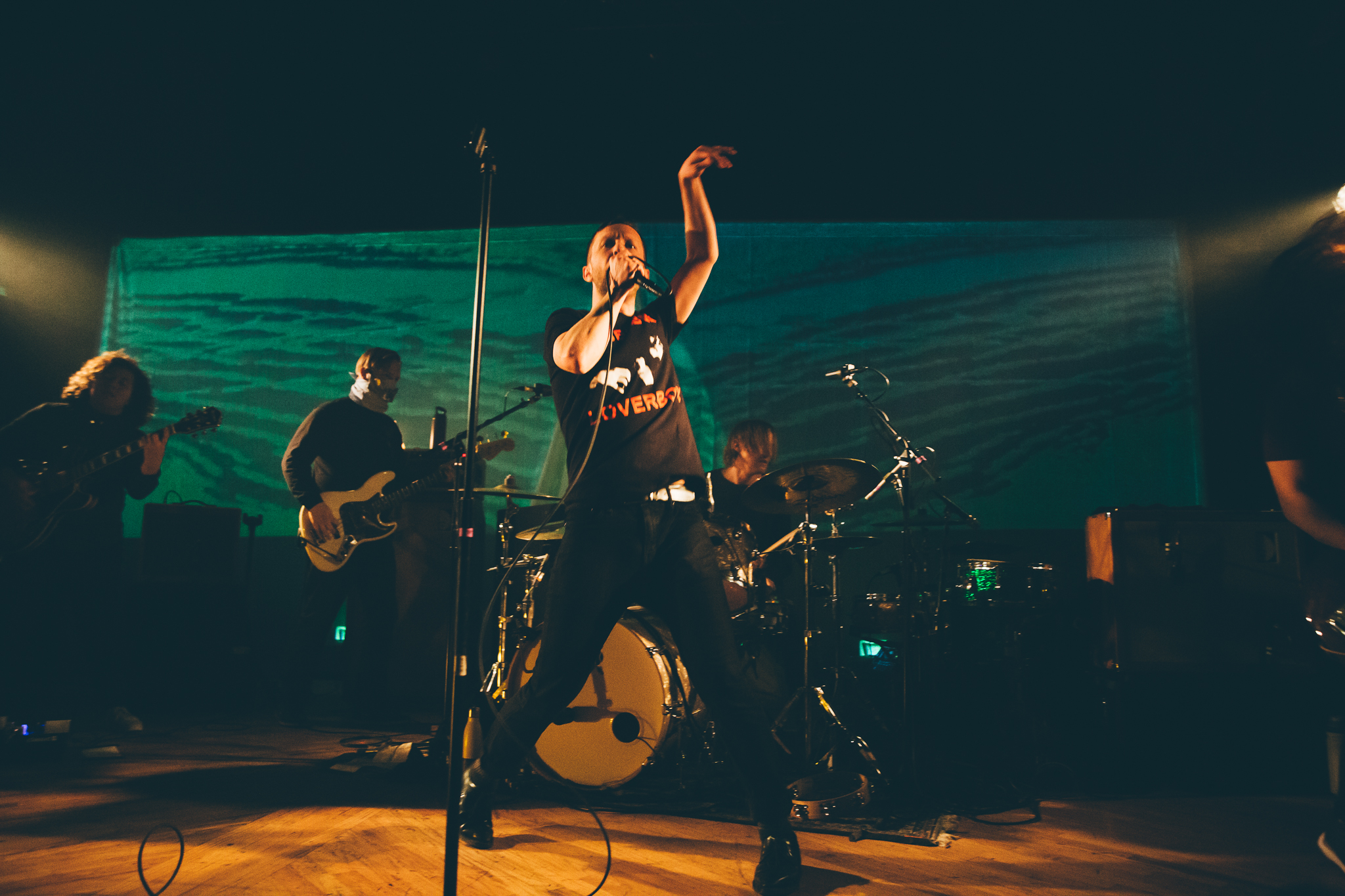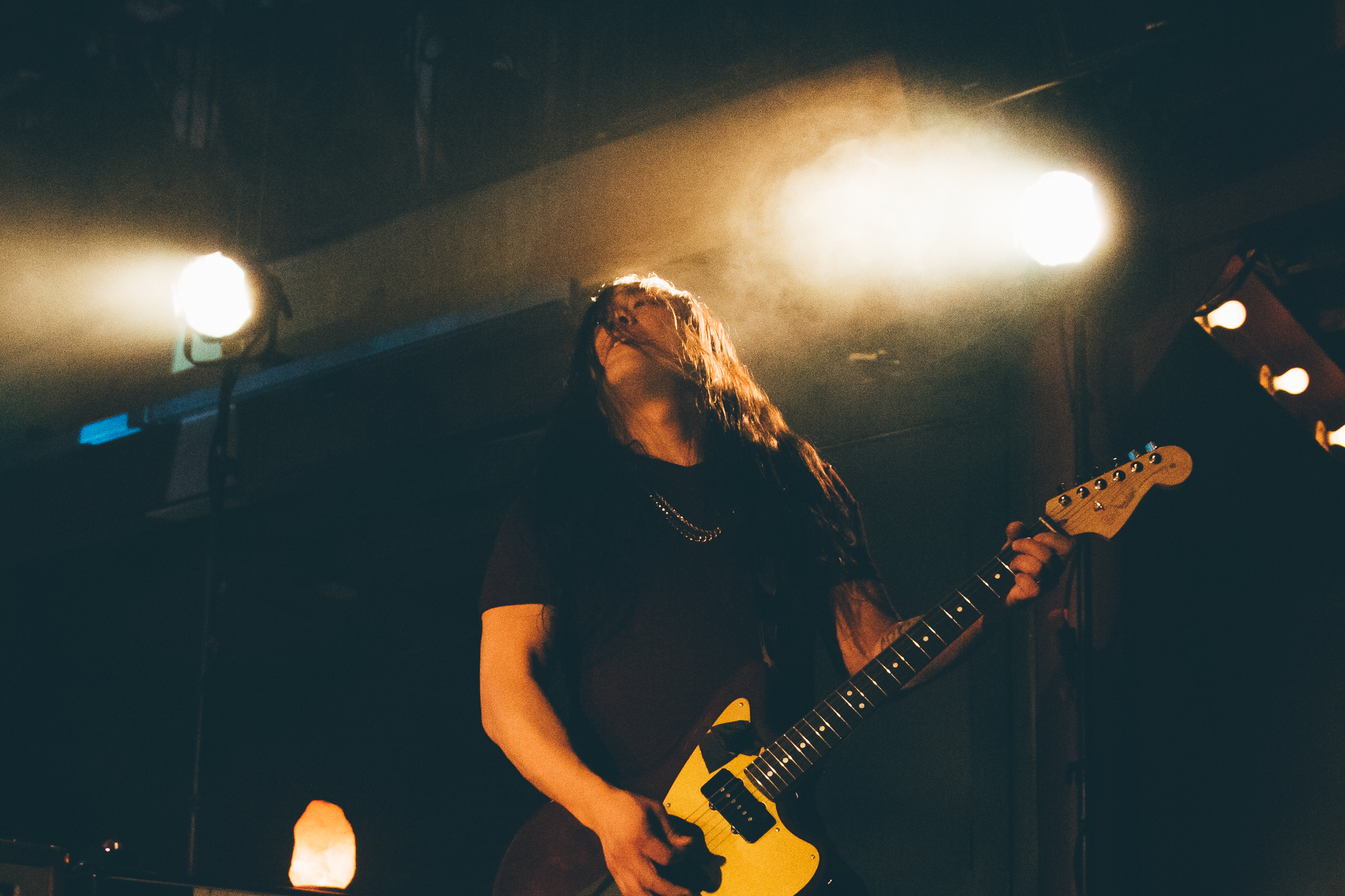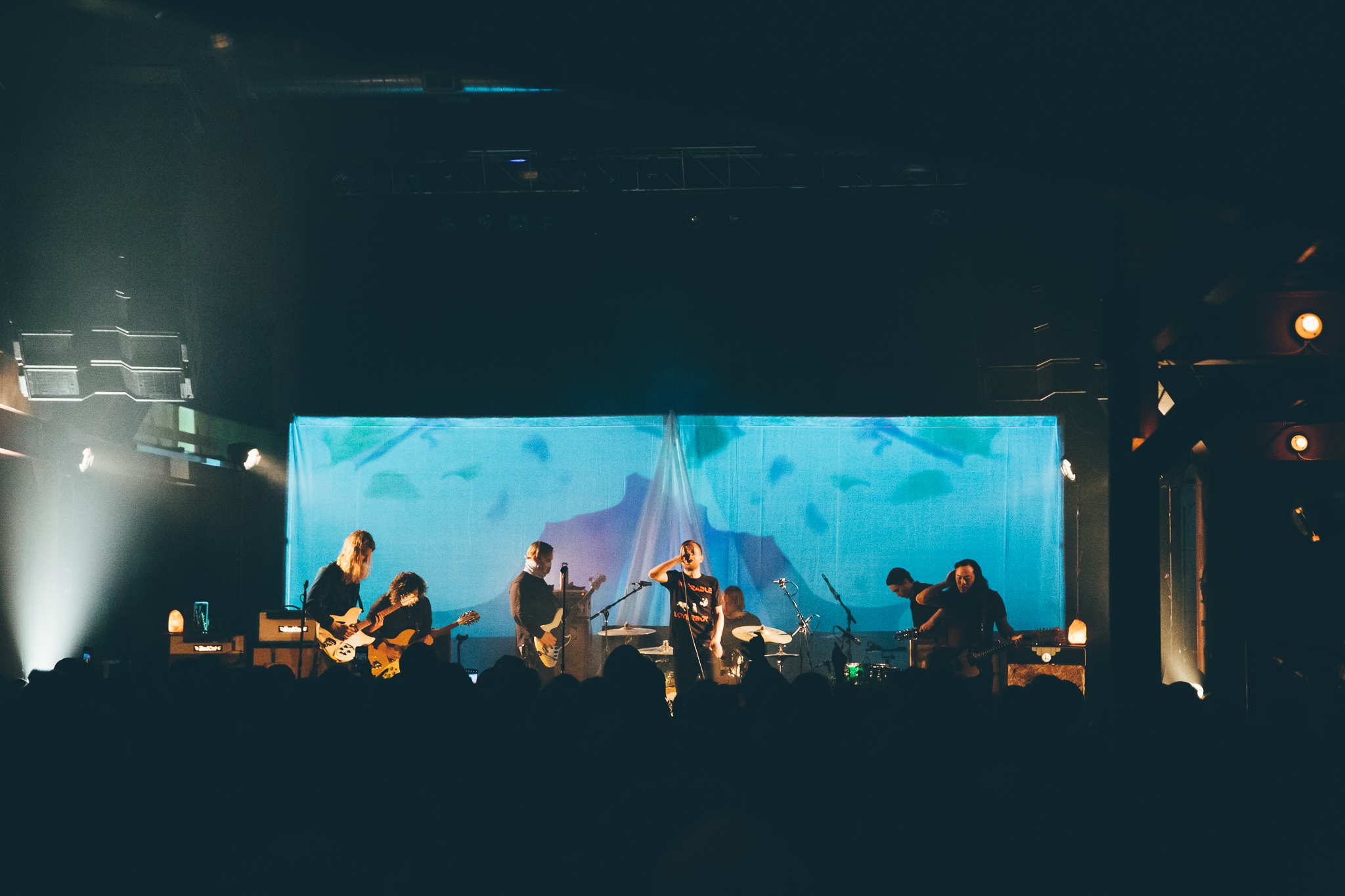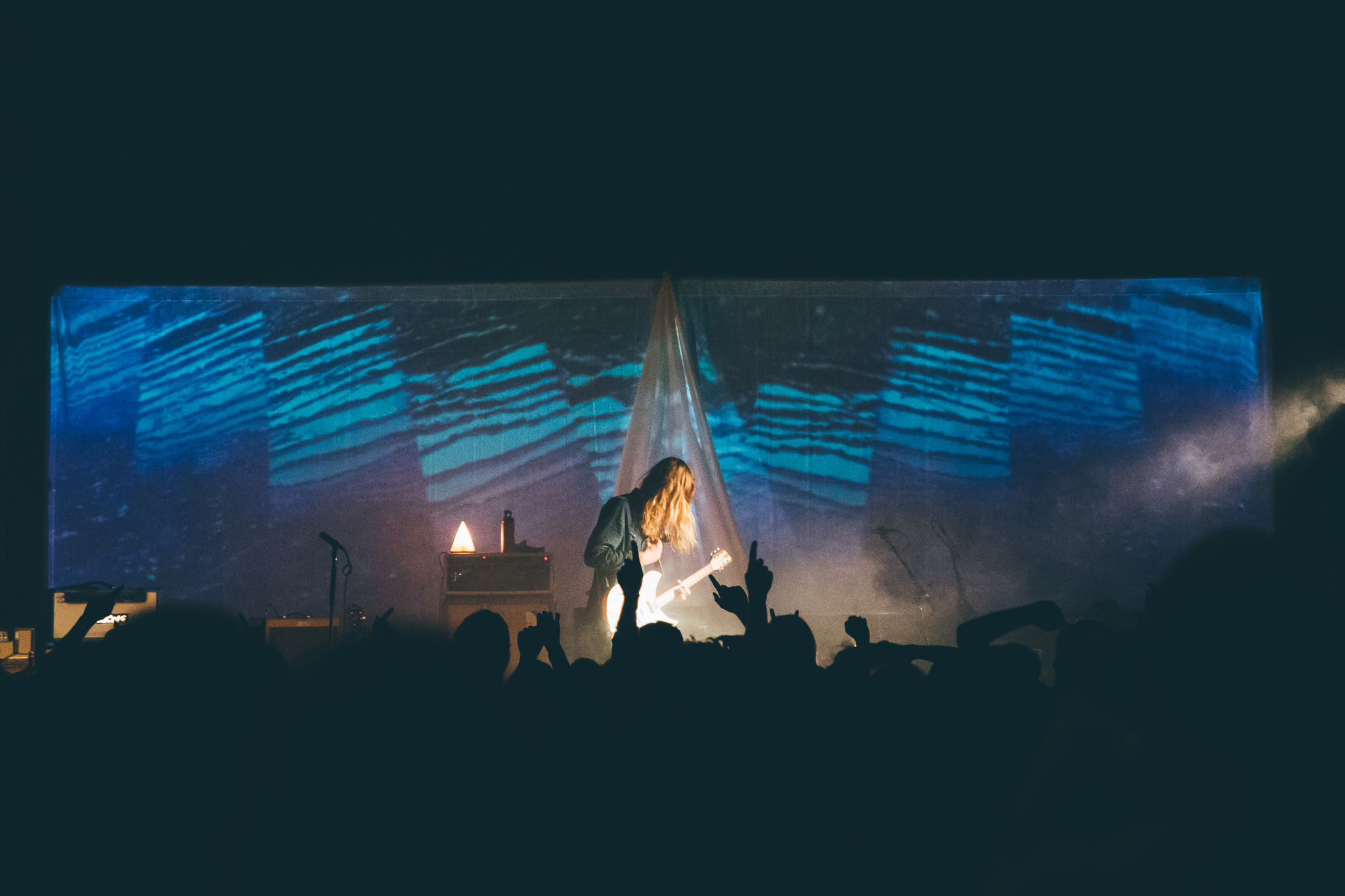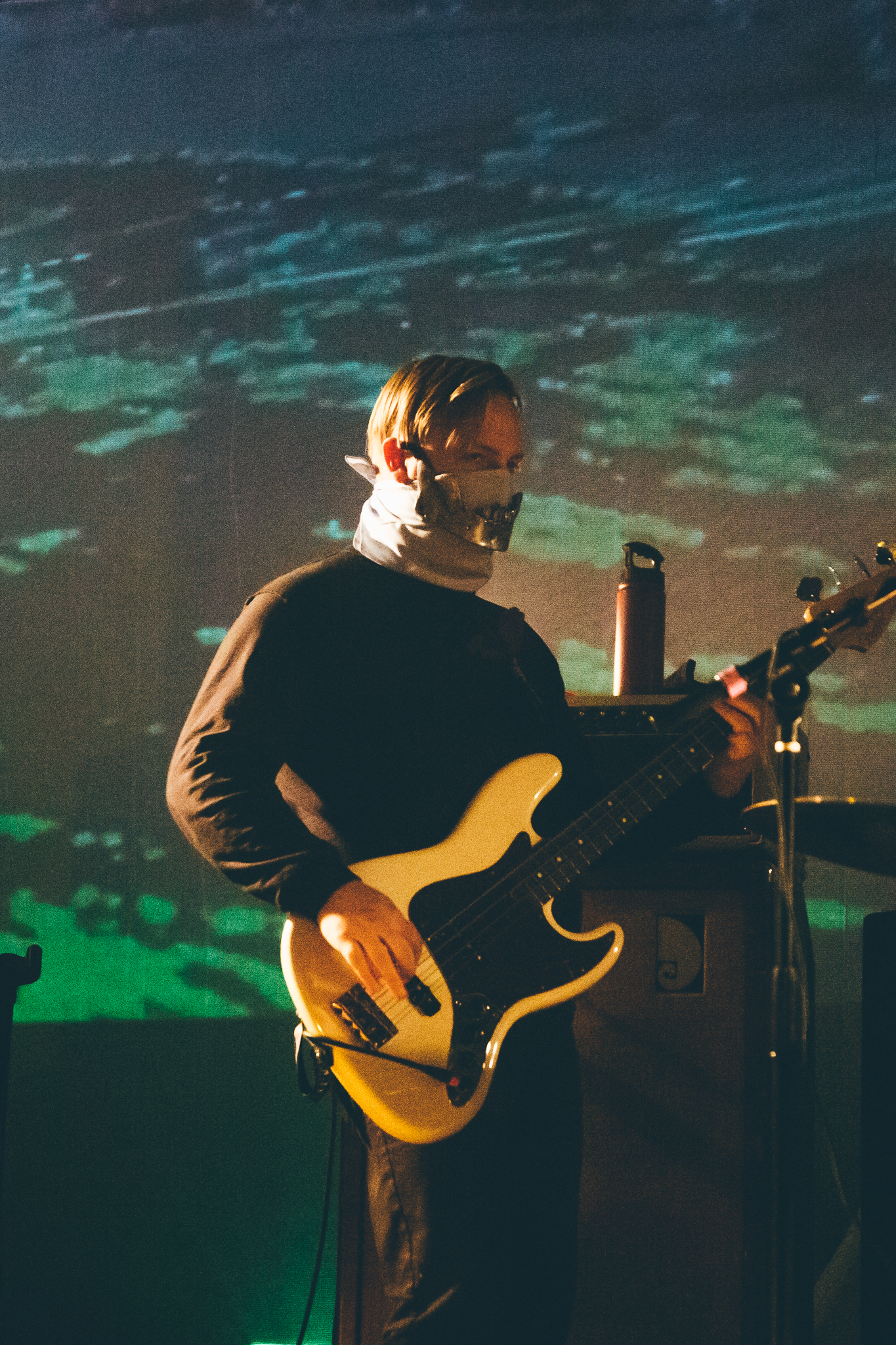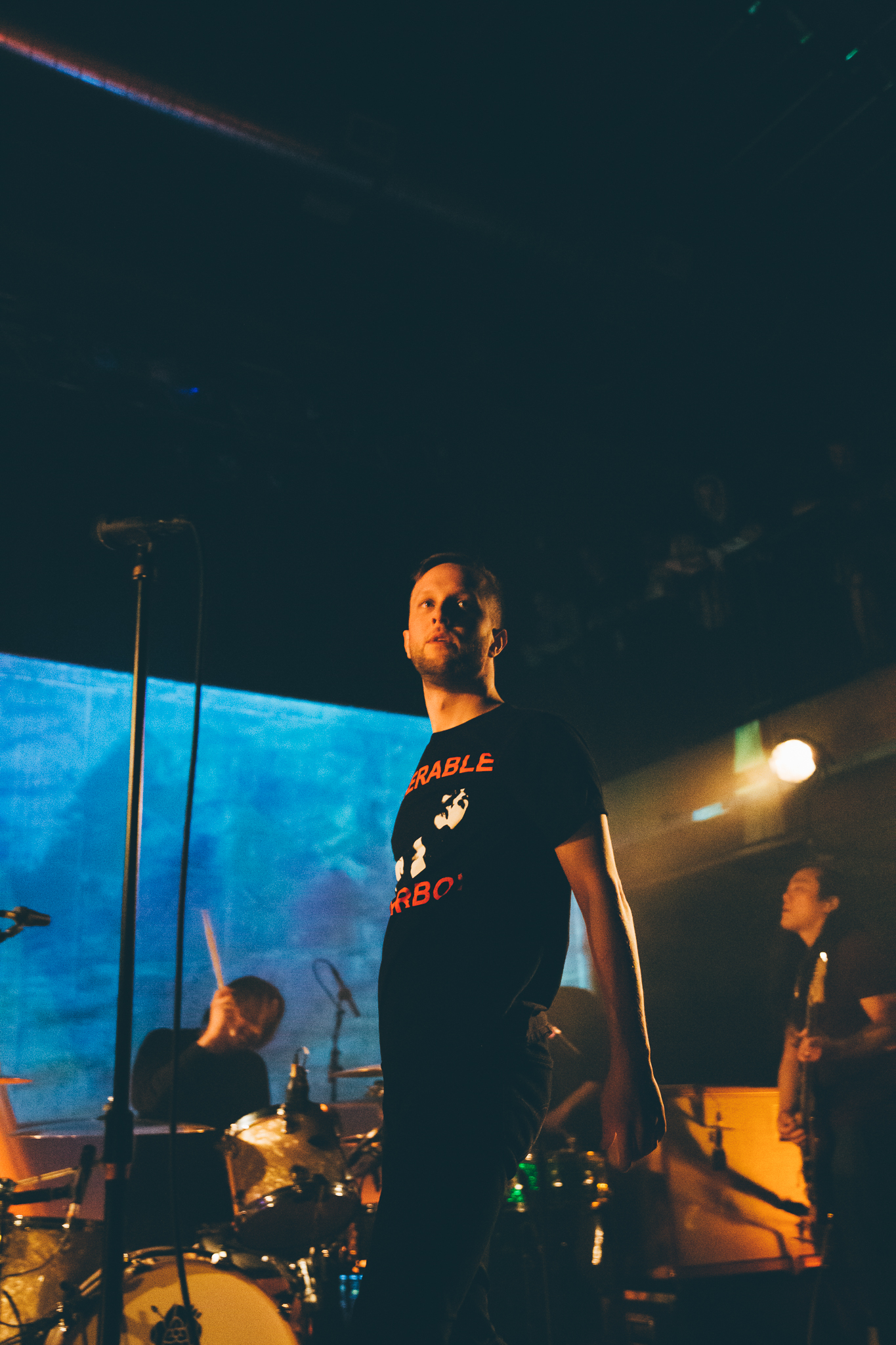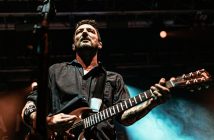Slow Mass, Gouge Away and La Dispute
Crofoot Ballroom // Pontiac, MI // April 15th, 2019
Photos by Kendra Petersen Kamp // Review by Jordan Petersen Kamp
Slow Mass
Gouge Away
La Dispute
“I guess it’s a good thing that— even after twelve years— I still get nervous before a show,” admitted Jordan Dreyer, the vocalist for the post-hardcore band La Dispute, to a packed Crofoot Ballroom in Pontiac, Michigan early in their headlining set on April 15. The band had just performed two songs from their new album Panorama— “FULTON STREET I” and “FULTON STREET II”— before sliding in to the deceptively groovy “A Departure” from 2011’s Wildlife. Looking at this three-song arc— which moves from delicate to pummelling to nearly danceable — there’s certainly reason to be nervous: that’s a lot of ground for a live hardcore band to cover.
The show opened with sets from Chicago slowcore band Slow Mass and Florida punk band Gouge Away. Performing songs from their 2018 album On Watch, Slow Mass’s set was a masterful, no-hits-wasted ode to loud-quiet dynamics. Gouge Away’s set was fierce and biting, ripping between songs from 2018’s Burnt Sugar and 2016’s Dies with a hurried and assured intensity. Together, the two bands showcased the breadth of heavy music.
La Dispute has always been a band in motion, throwing themselves into new creative processes with every release that reveal and develop new strengths along the way. With new strengths comes new challenges, however, especially in a live setting. Now with four full length albums, all of which function differently from one another, La Dispute has an extensive and varied catalog to consider.
To see La Dispute’s expanded and expanding vision live is an exciting thing. The show featured a lighting setup engineered by guitarist Chad Morgan-Sterenberg with projections of abstract animations by bassist Adam Vass, which provided a surreal visual fabric for the set. With an extra guitarist (Anays Torres) and their tour manager lending auxiliary percussion, new songs like the aforementioned “FULTON STREET II”, “FOOTSTEPS AT THE POND” and “ANXIETY PANORAMA” sounded enormous. The extra hands also helped in maintaining the earnest hush of album standout “RHODONITE AND GRIEF”, as shakers, tambourines, guitars and trumpet wove together in perfect balance. Even older songs in the setlist have been updated or refined— Dreyer now documents the storm in “Stay Happy There” as touching “down south in Hudsonville” instead of north and drummer Brad Vander Lugt closes “First Reaction After Falling Through Ice” with an expanded drum fill not heard on record.
This constant revision and correction— even in tiny details like the geography of a tornado or an updated drum fill— fit as part of a larger theme of La Dispute’s live show. “Music is so much better than most things we’re told to pay attention to,” Dreyer stated, later noting that he “increasingly feel[s]the importance of communities where we can forget the hostilities of the world. Away from bigoted people. It’s more than music.” In moments like these it seems like La Dispute is asking questions of themselves and their role as artists, even a decade into their career; like they are pushing against stasis or complacency while actively challenging a model that supports art as only entertainment.
This does not mean La Dispute sets are not entertaining or that they don’t care about the hopes of their fans— the band played a mini-set of some of the most fervent songs from their beloved debut full-length Somewhere at the Bottom of the River Between Altair and Vega. But there’s an introspection happening on stage, as if the band is aware of absurdity that they make a living playing songs that tell hugely emotional and tragic stories night after night and the risk that comes with doing so. What is challenging or affecting in art can become rote or tactless when stripped of context. It’s this introspection that could explain the setlist’s exclusion of “King Park,” a fan-favorite that documents tragedy on both a personal and systemic scale through a story of a drive-by shooting in a neighborhood with a legacy of white-flight and racialized injustice.
Before the band’s final three songs, Dreyer pulled back the curtain on the normalest of concert conventions: the encore. Rather than leaving the stage, he explained, with the pretense of being invited back to play more songs, the band was going to simply play through the songs they planned for the night. In everything, La Dispute aims to ensure that neither artist nor audience is simply going through the motions. It’s a good thing that— even after twelve years— La Dispute is committed to creating a live set that is worth feeling nervous about.

